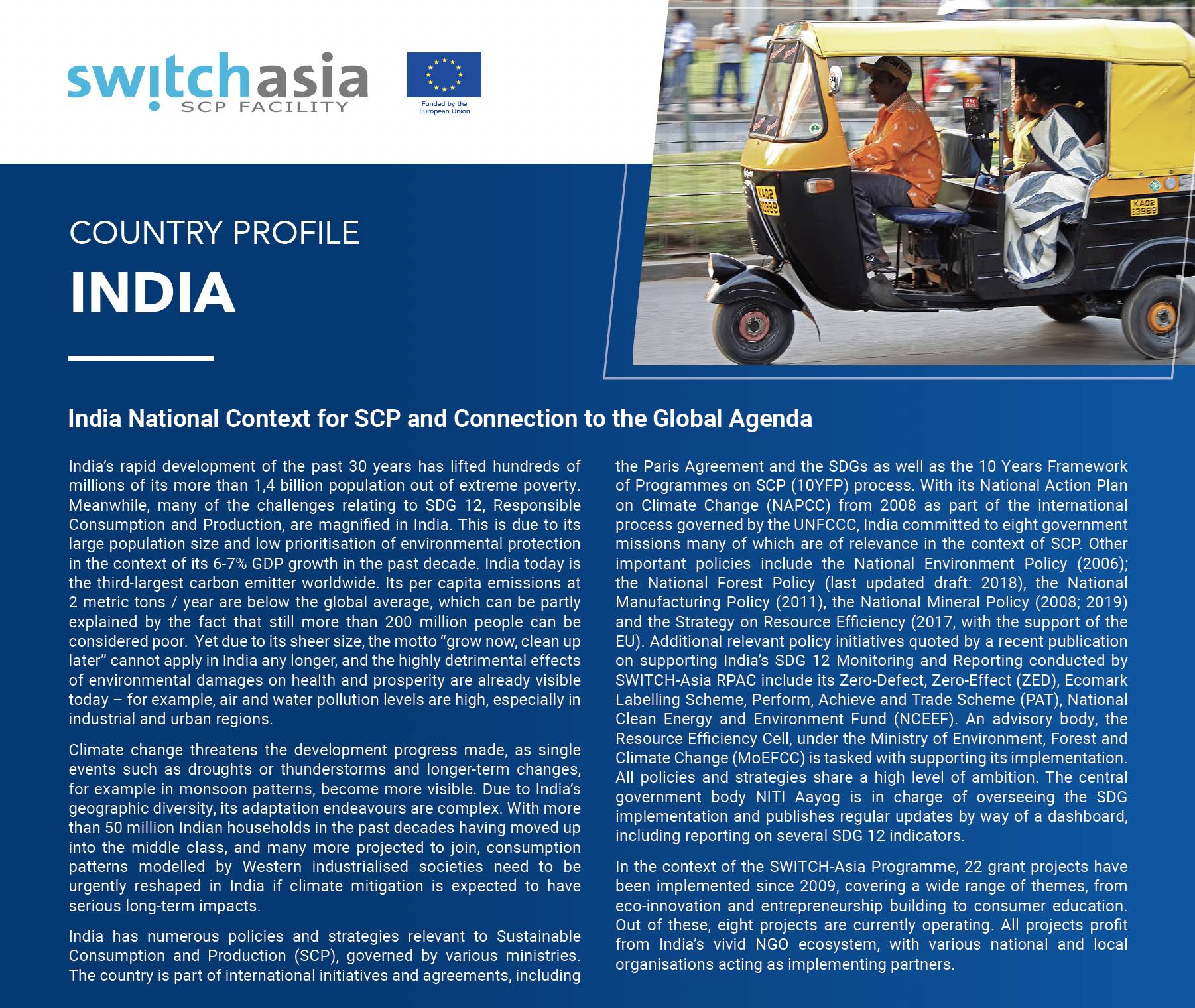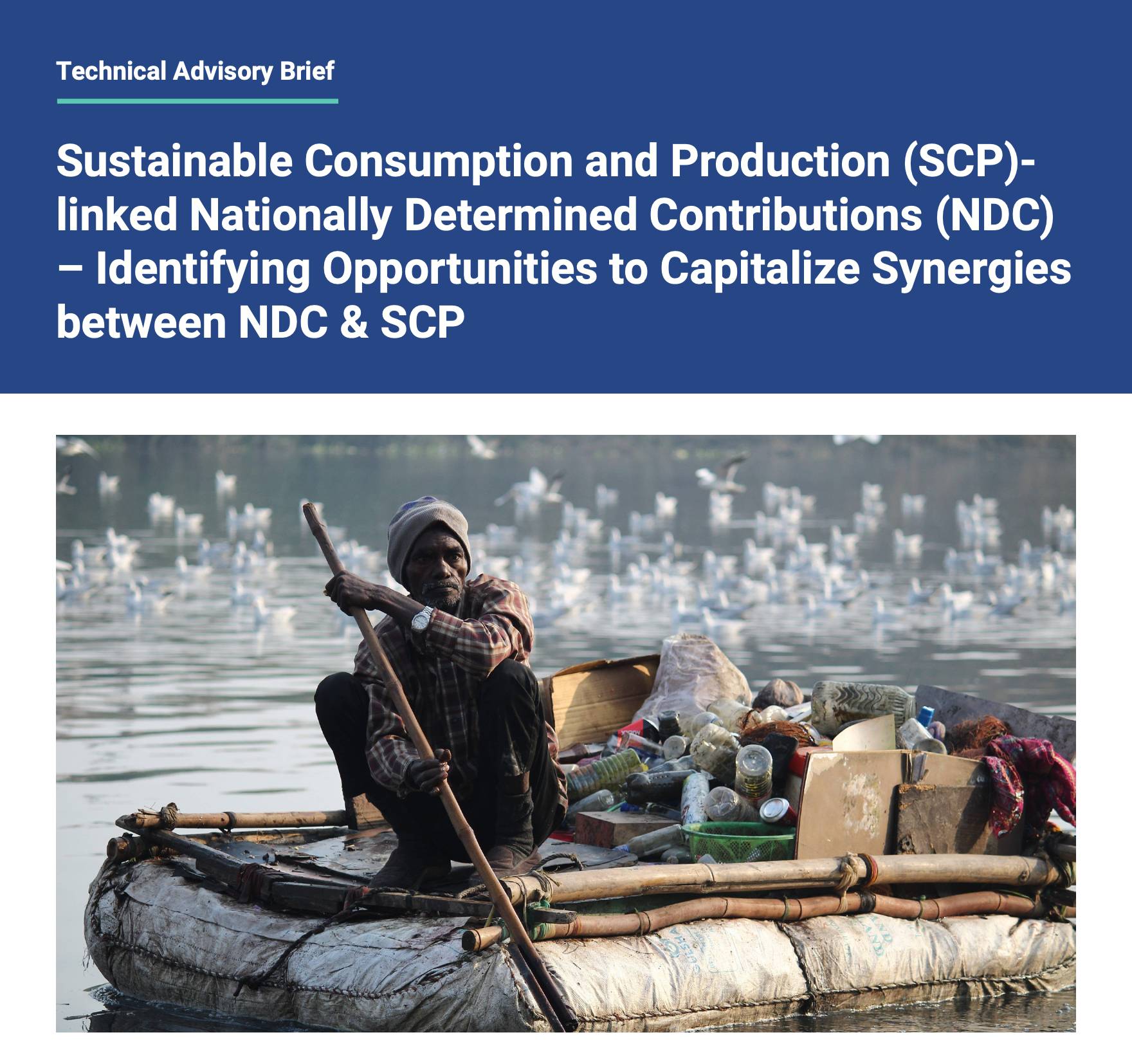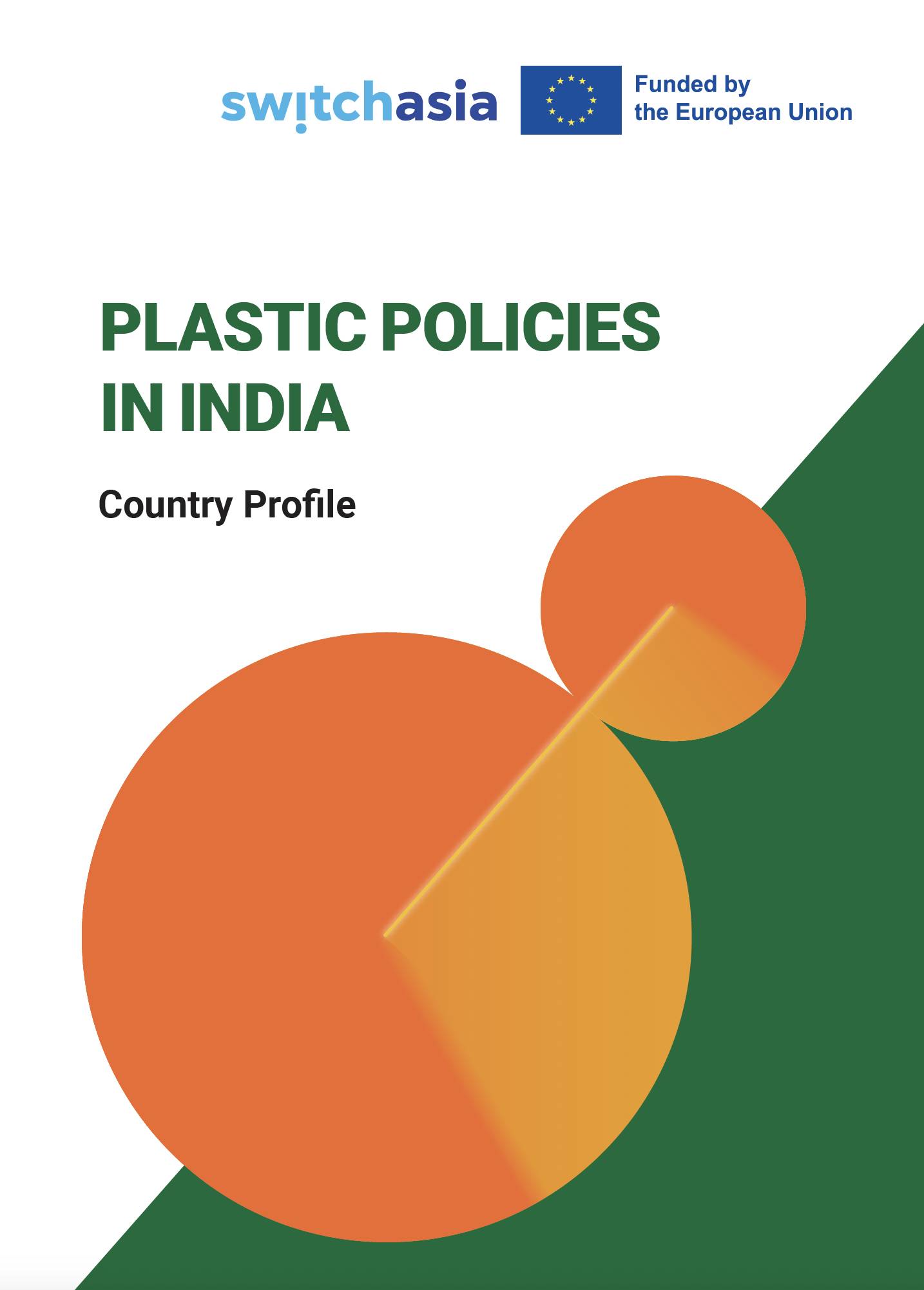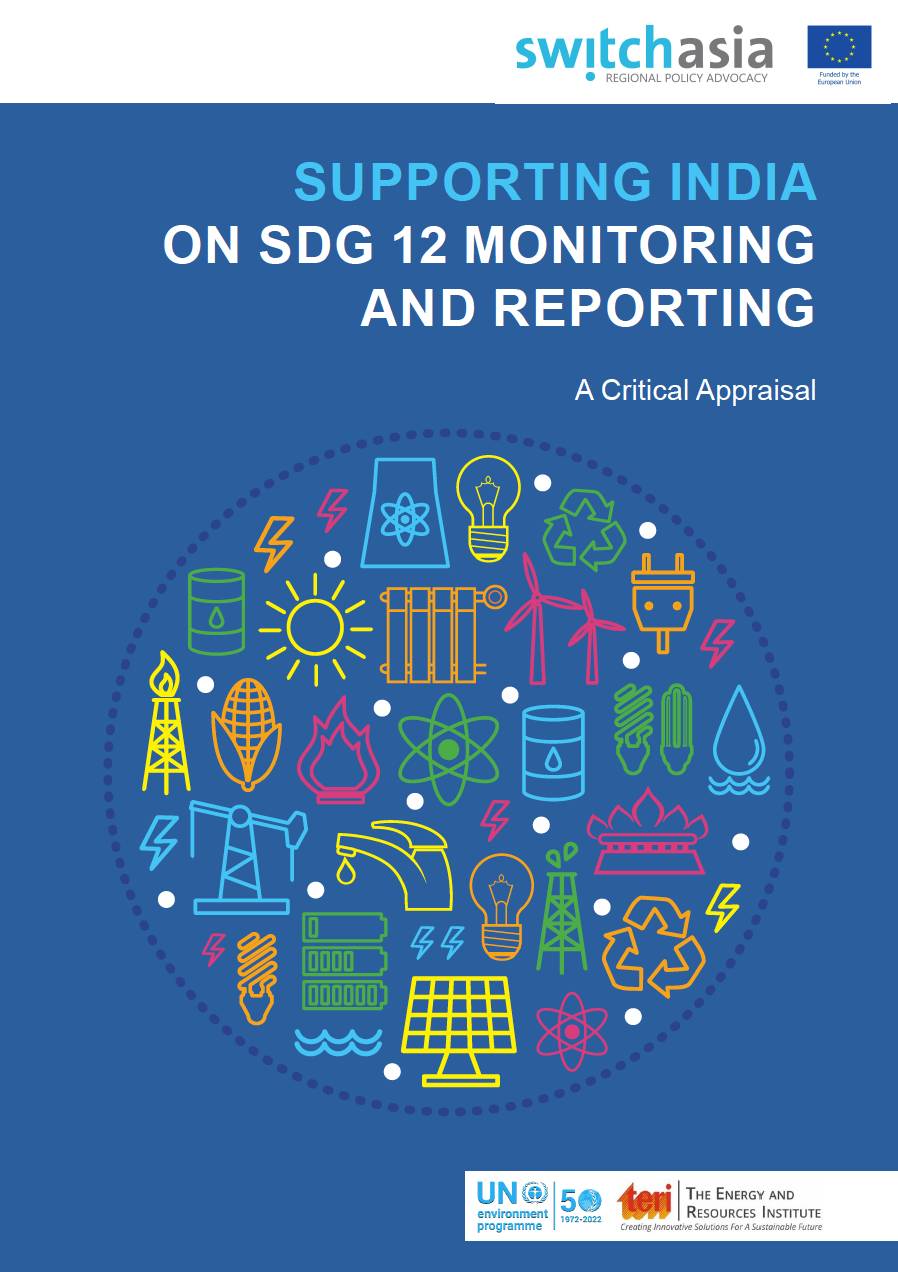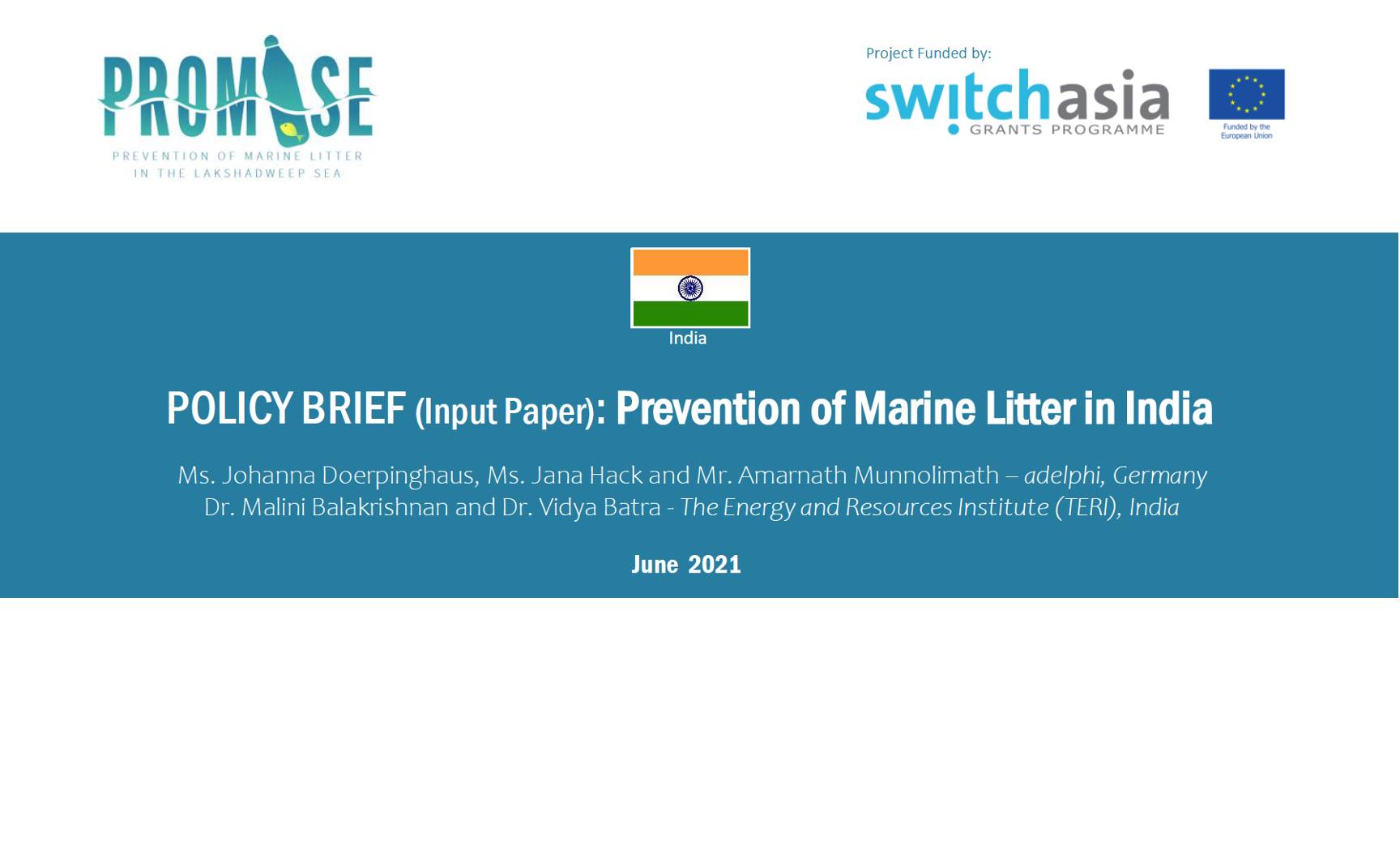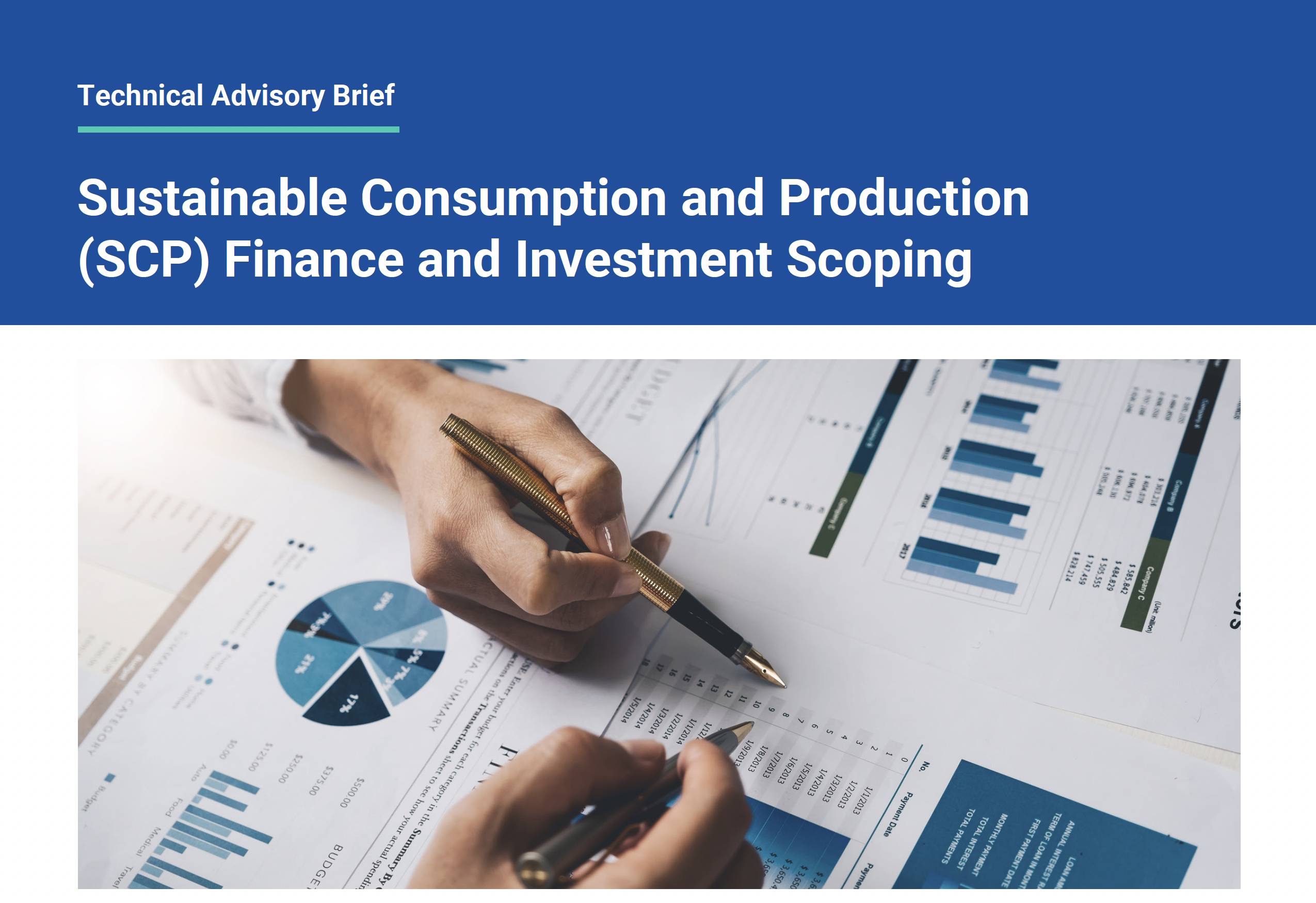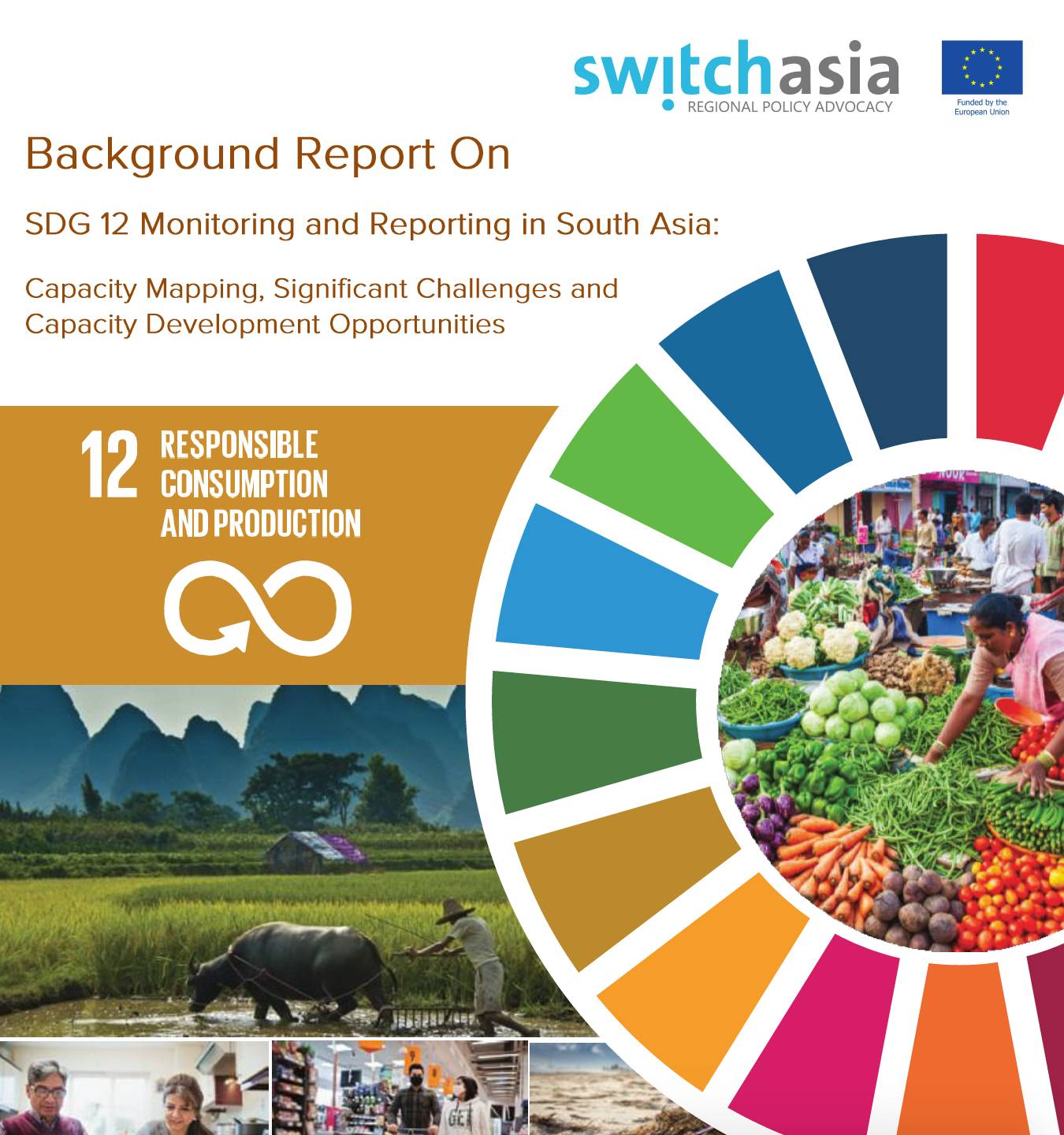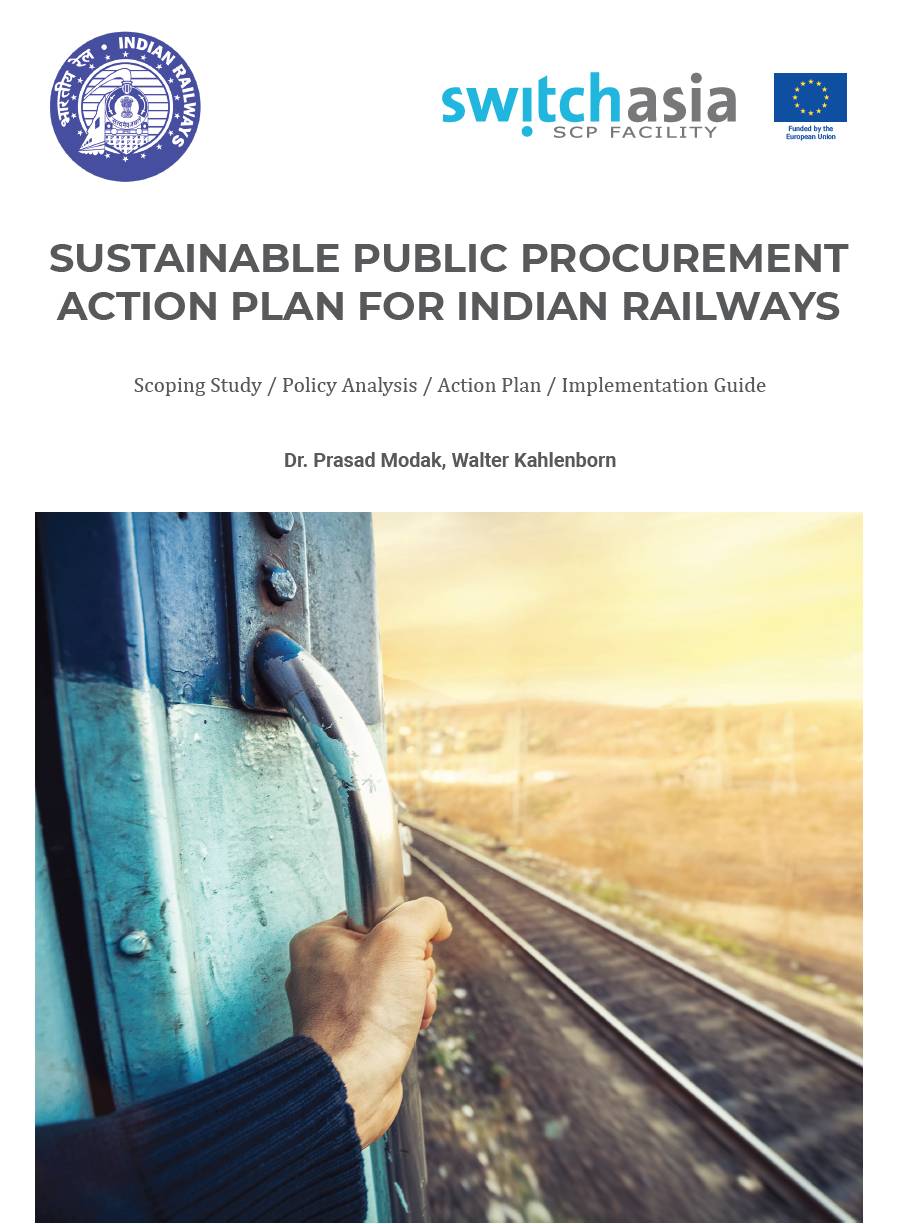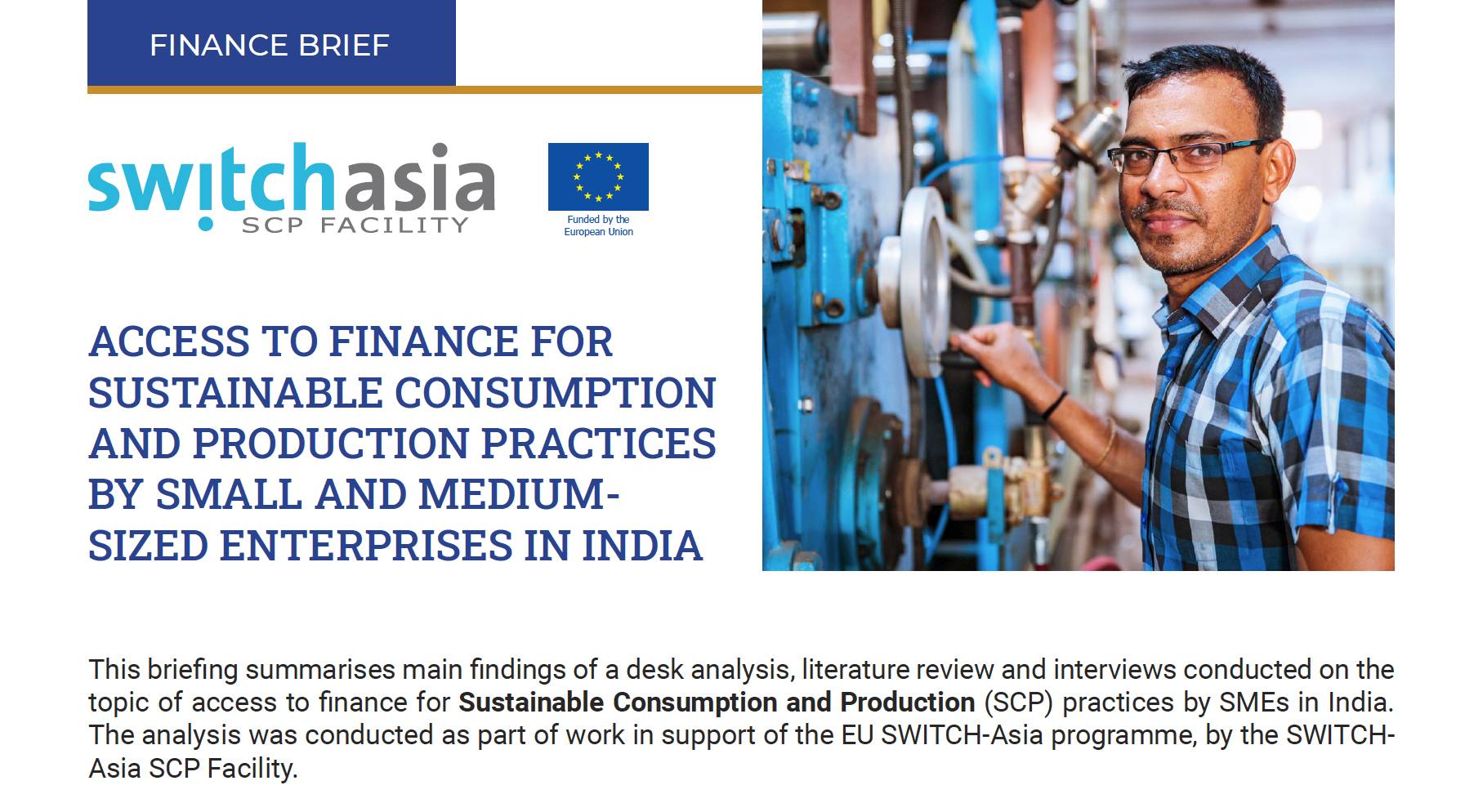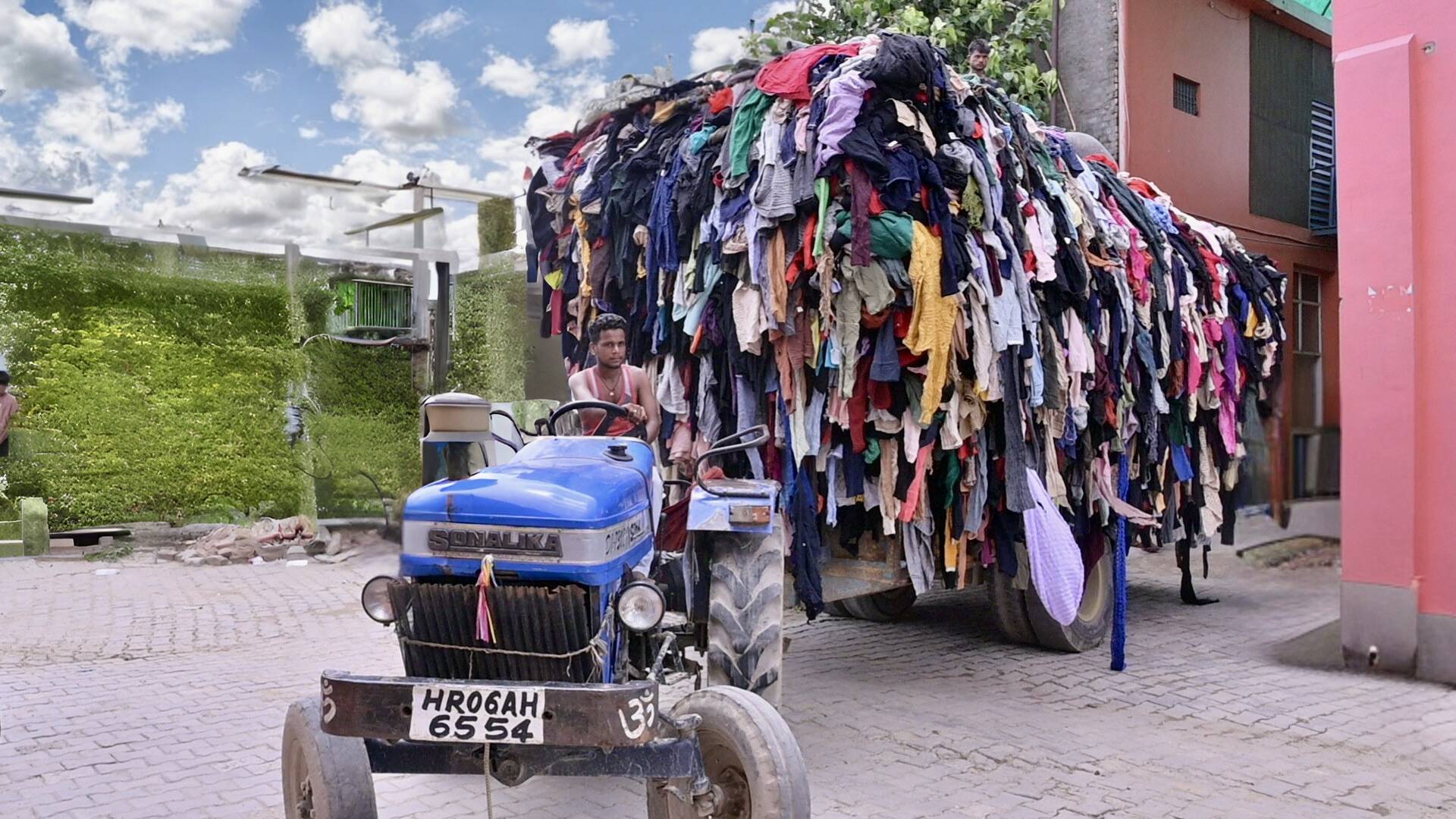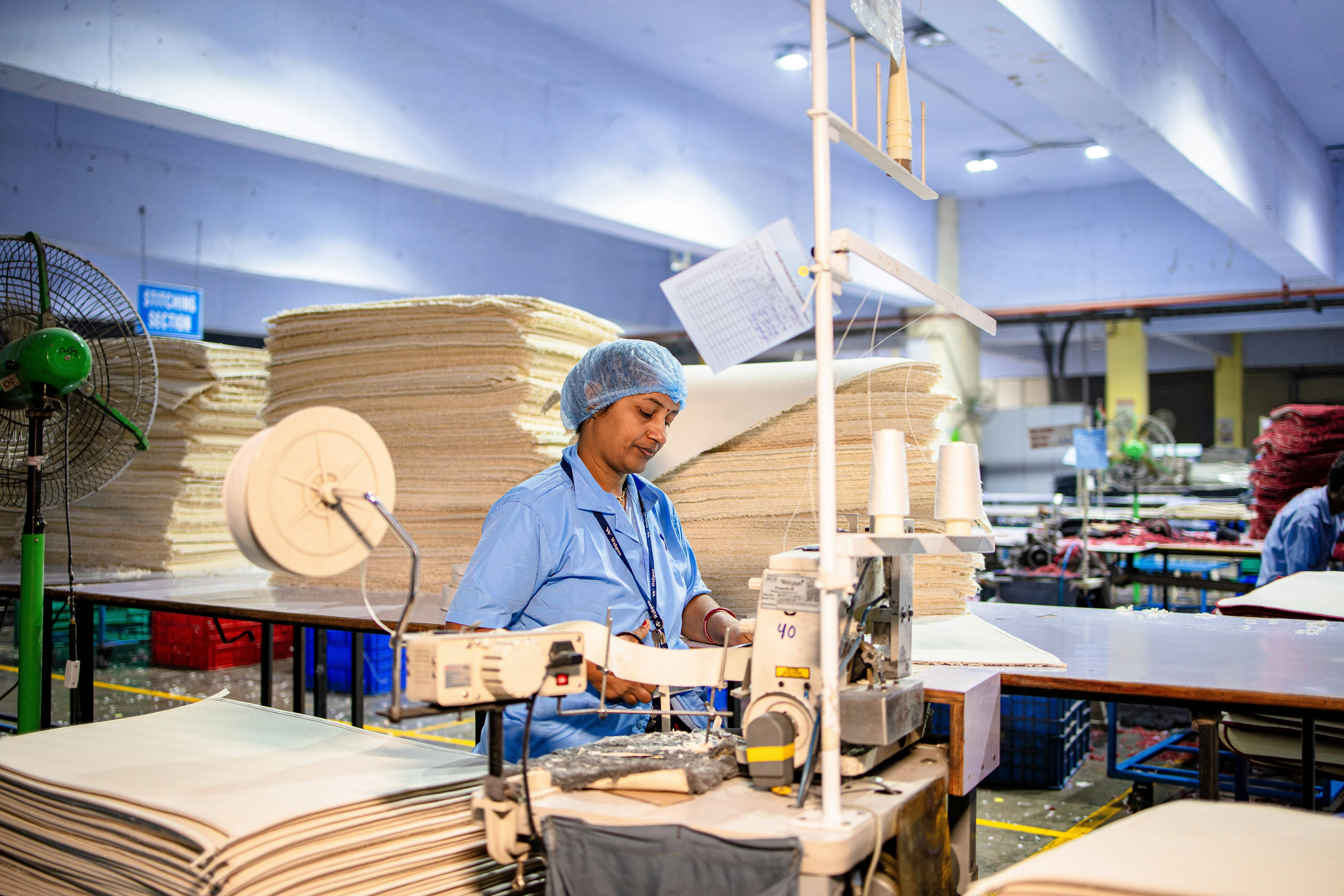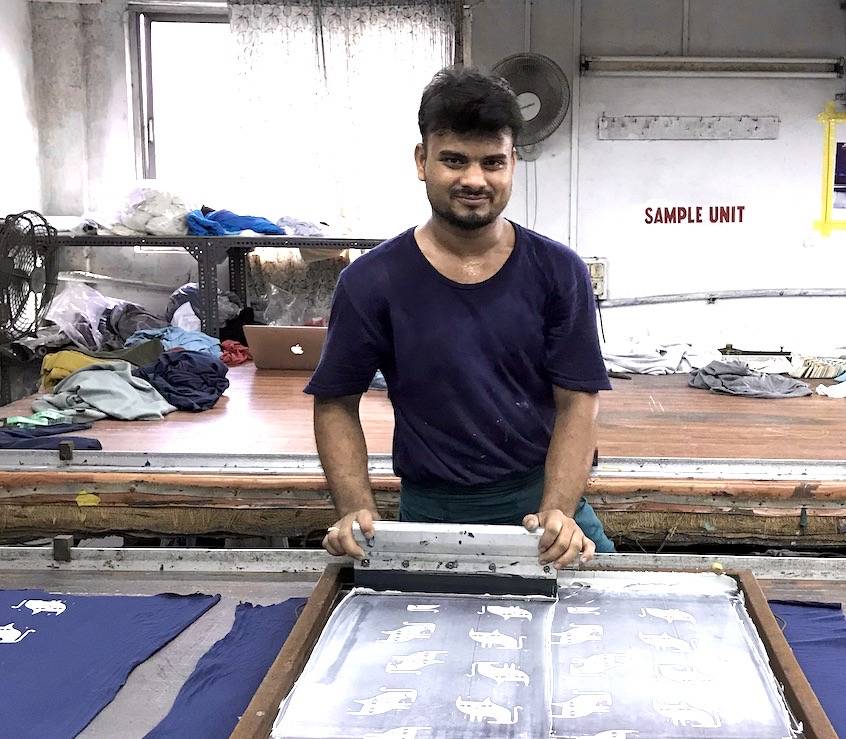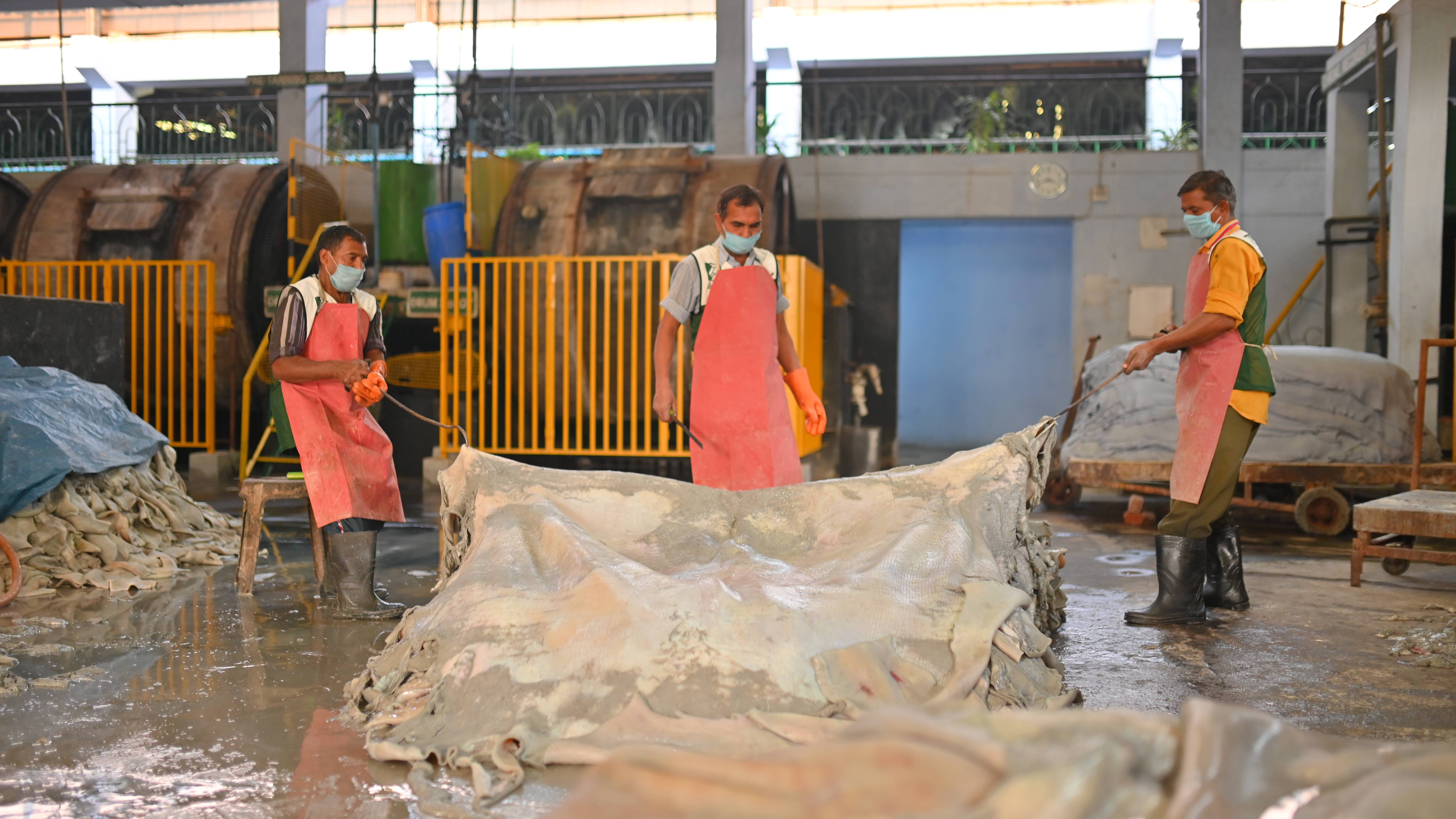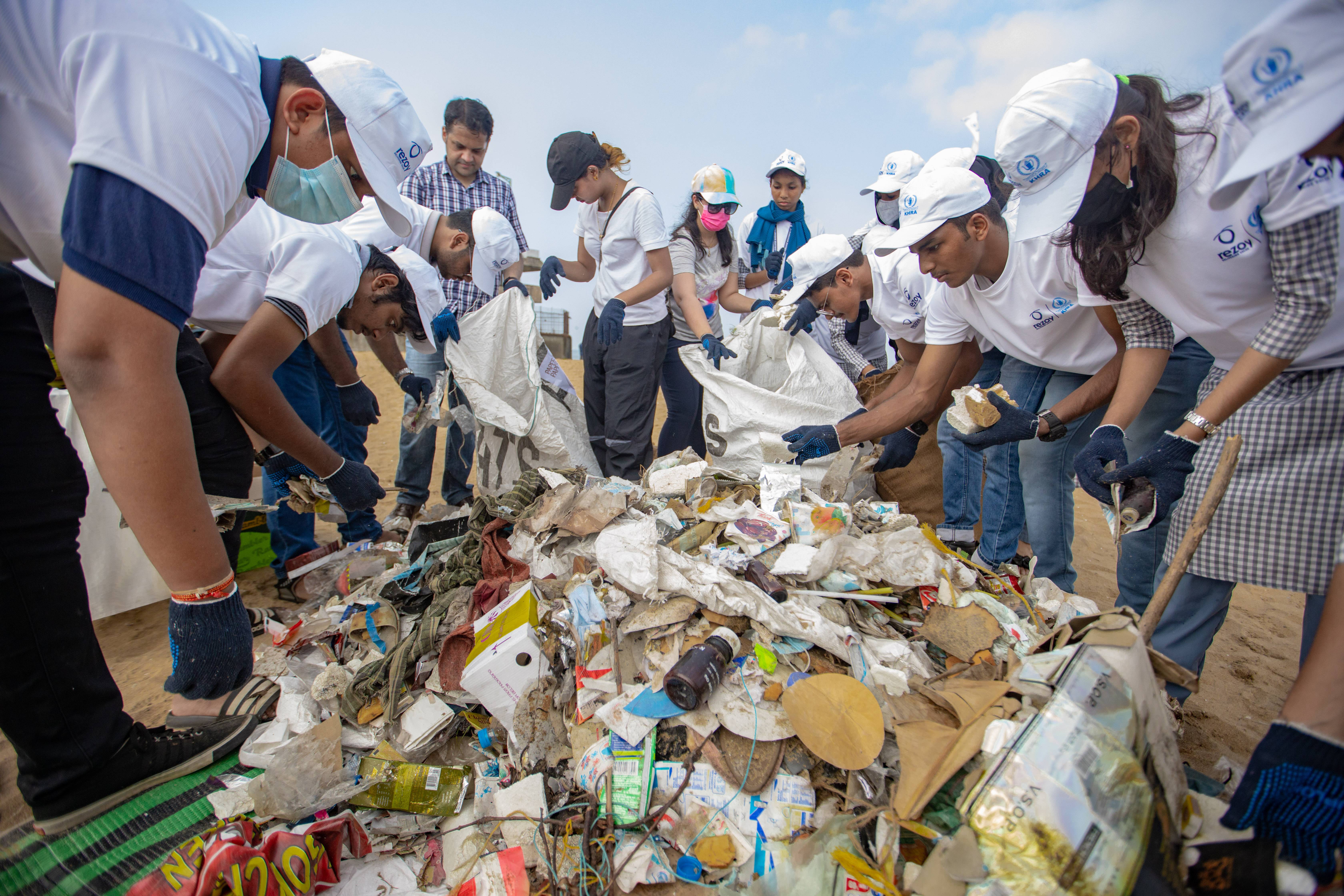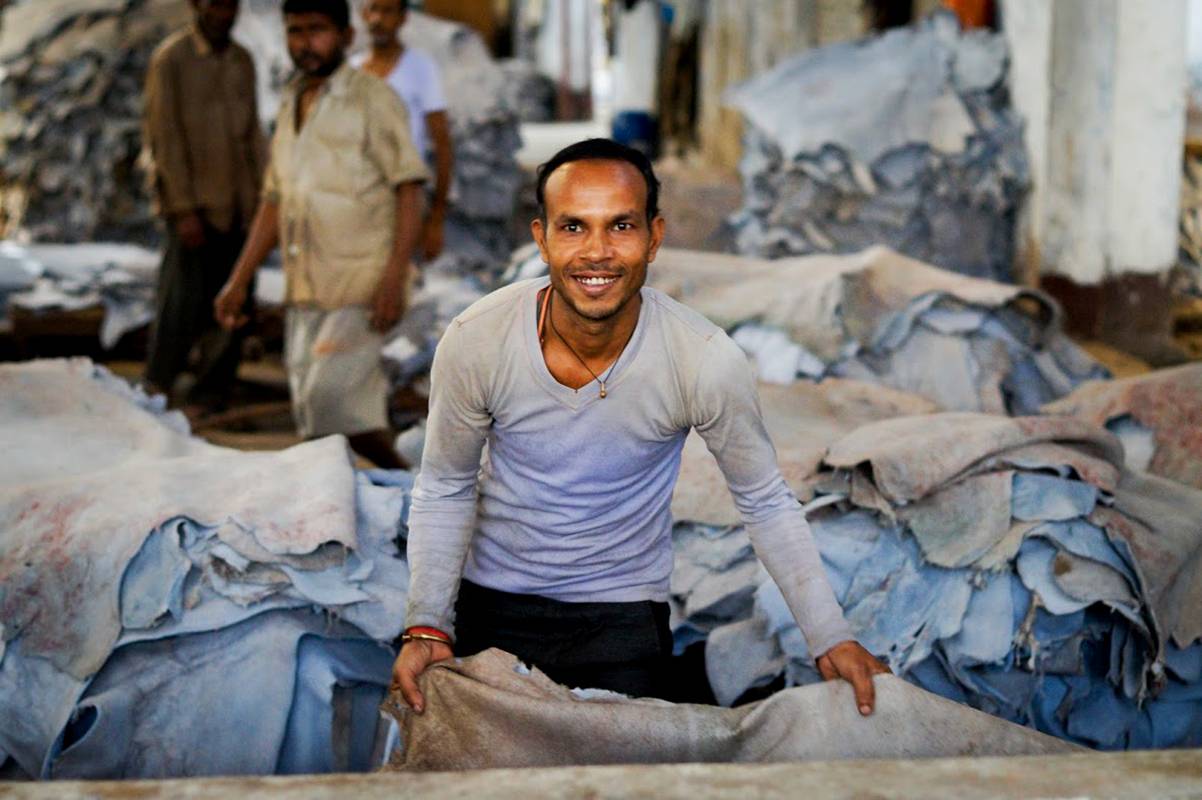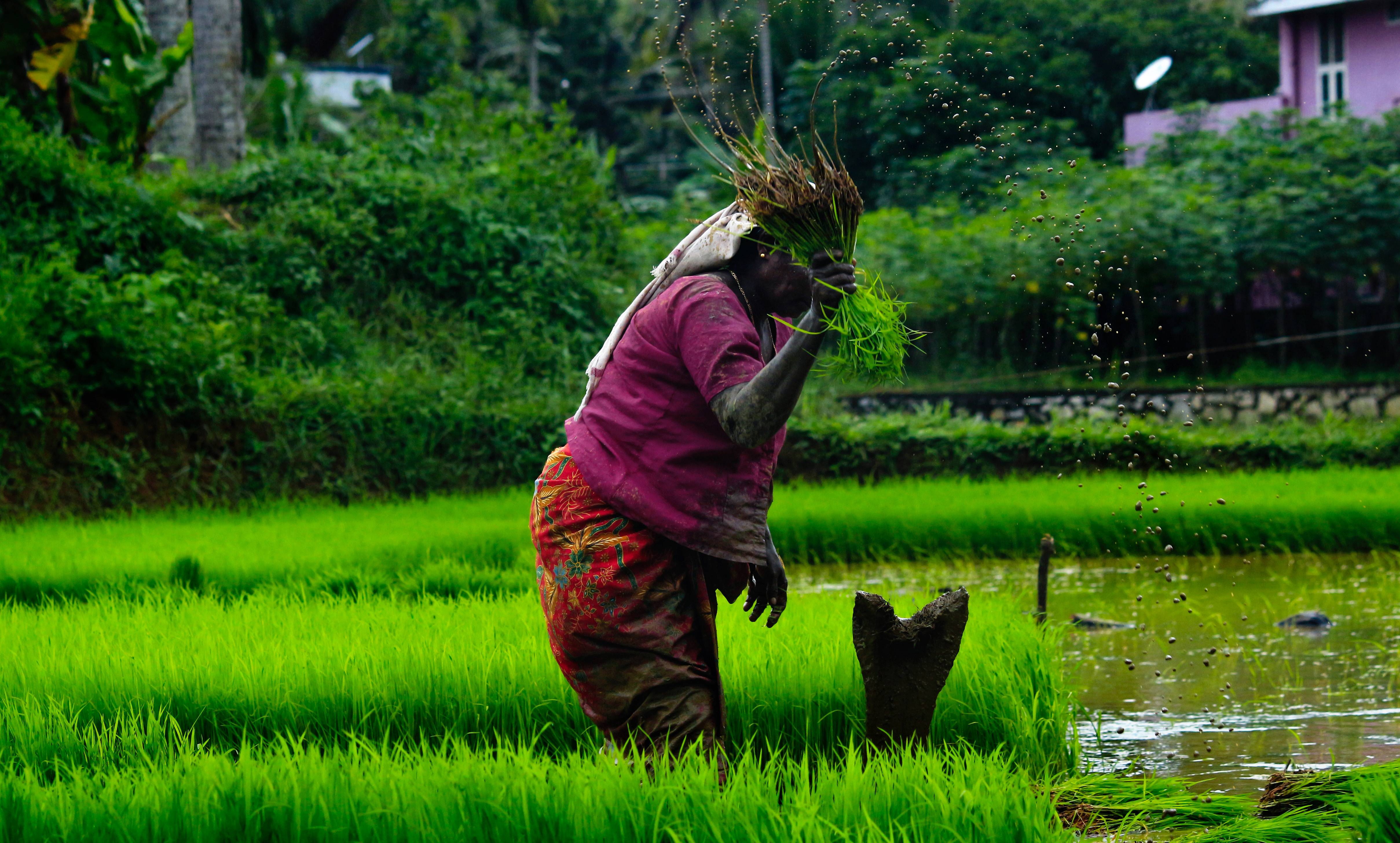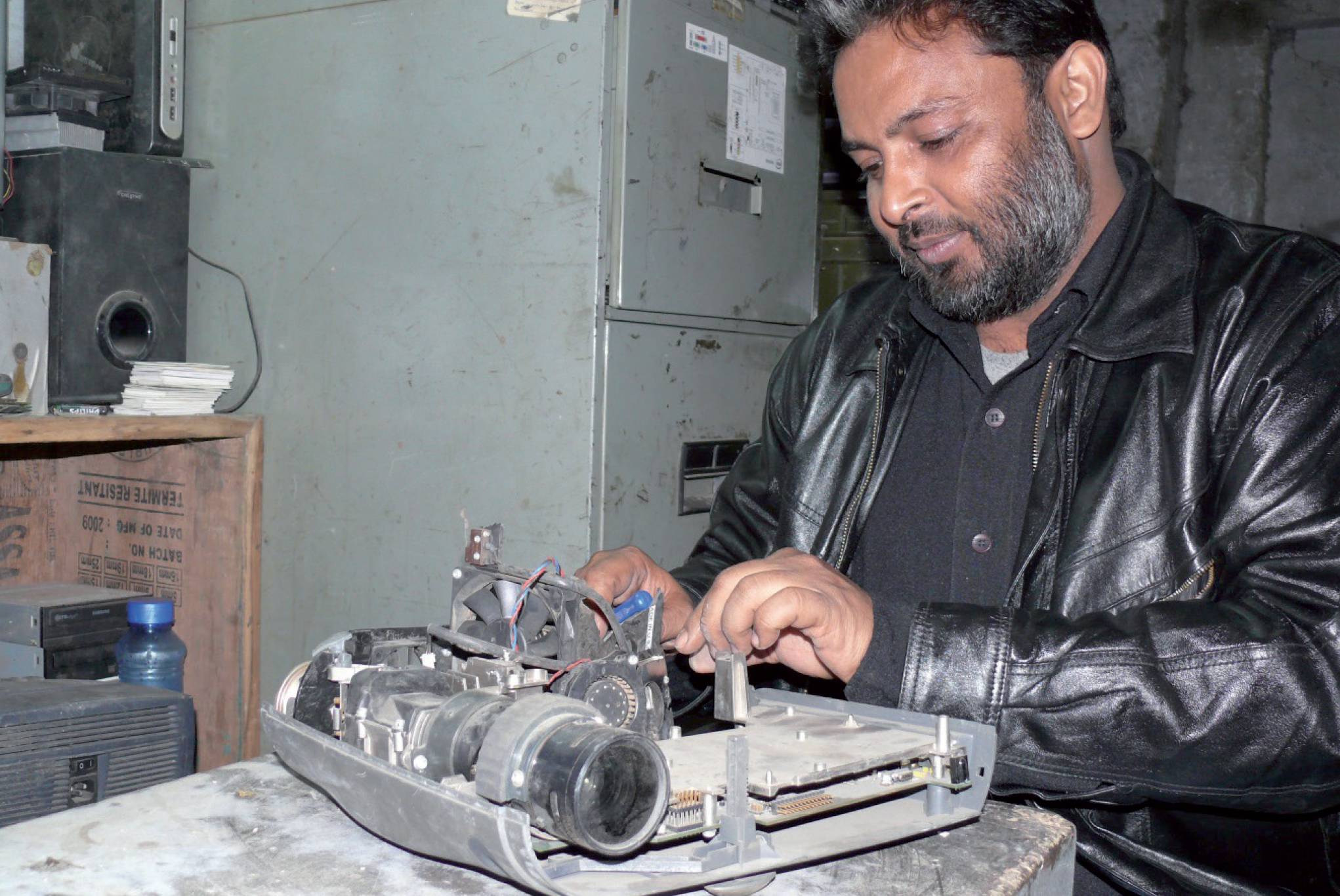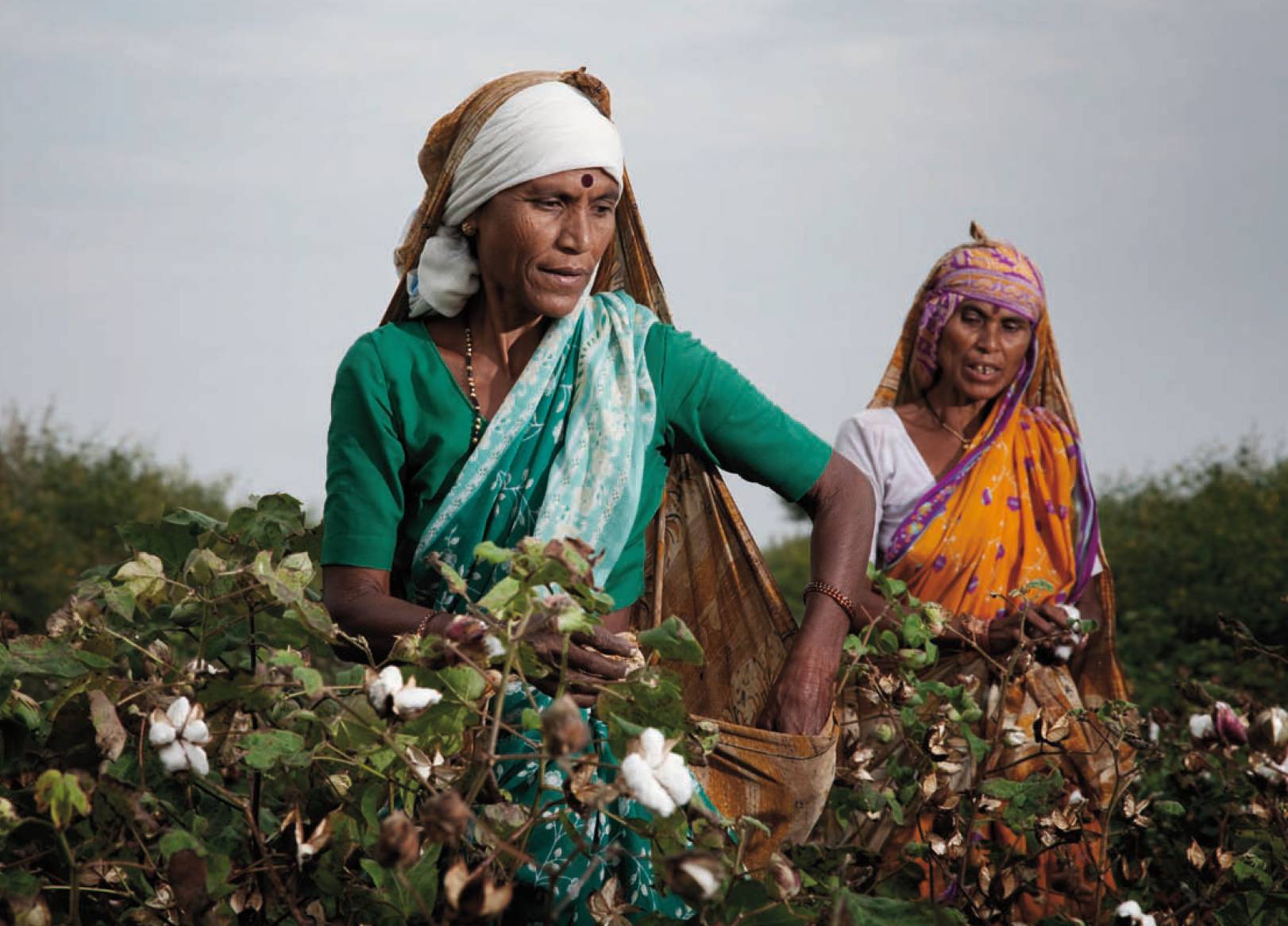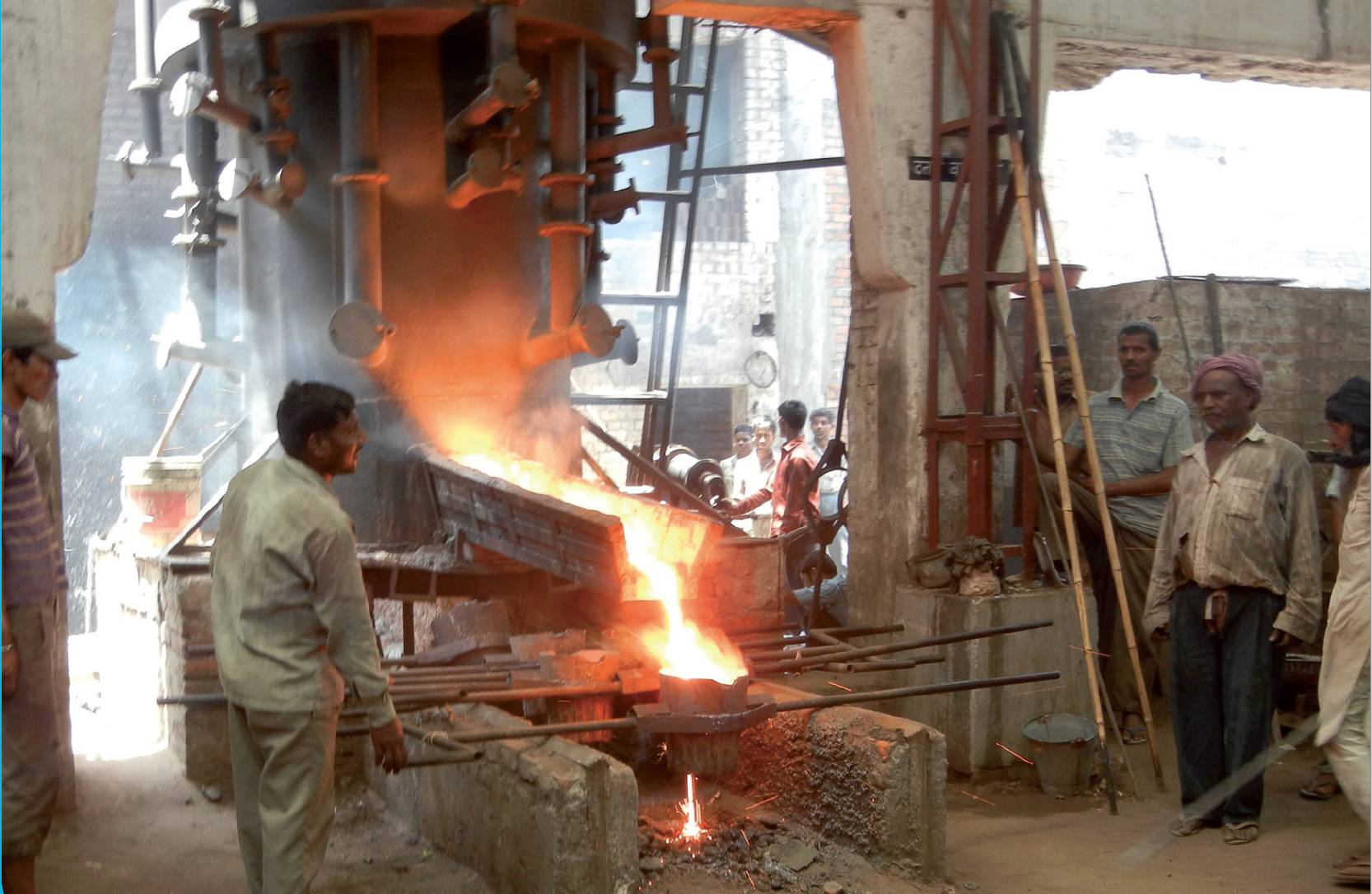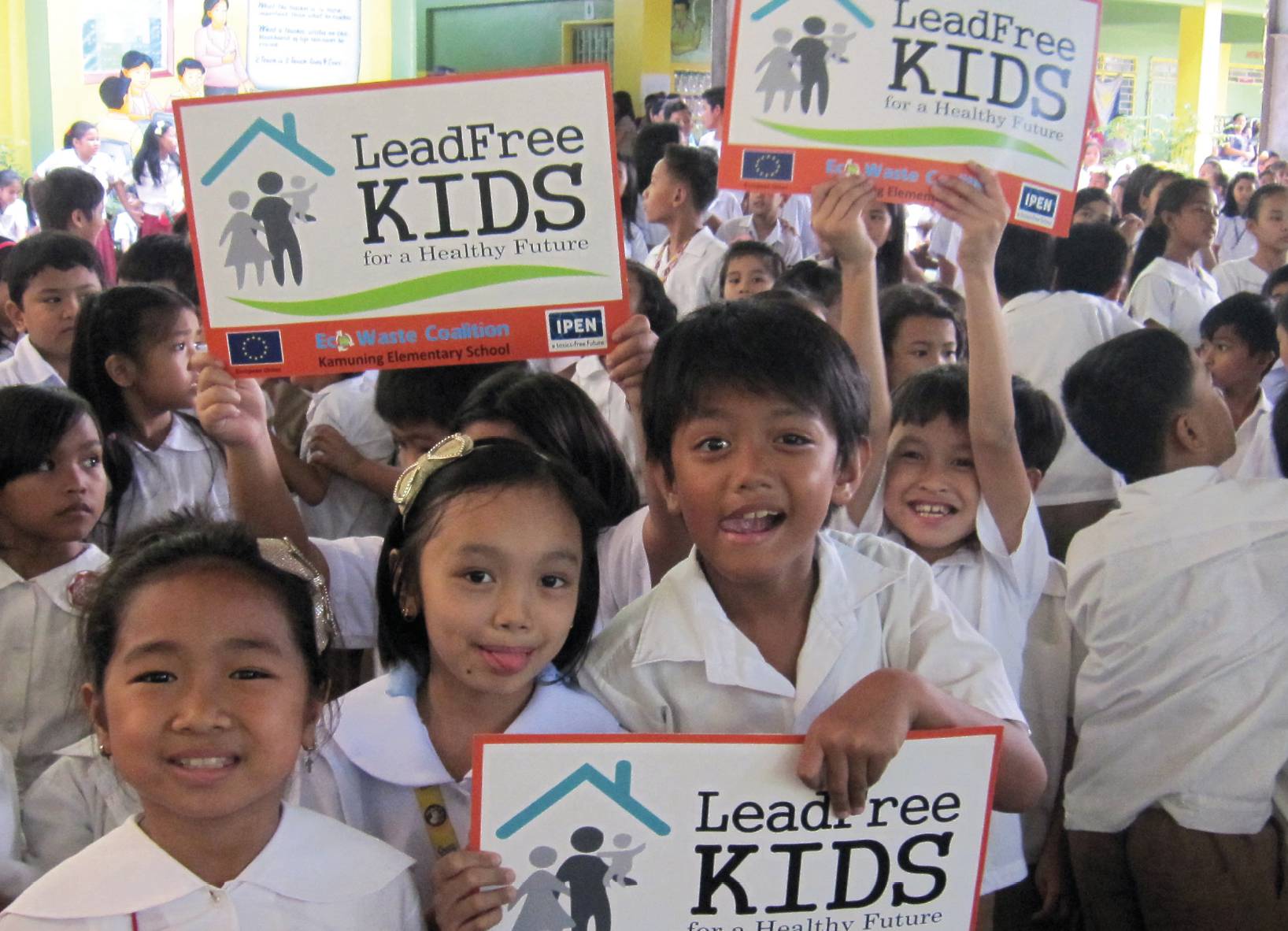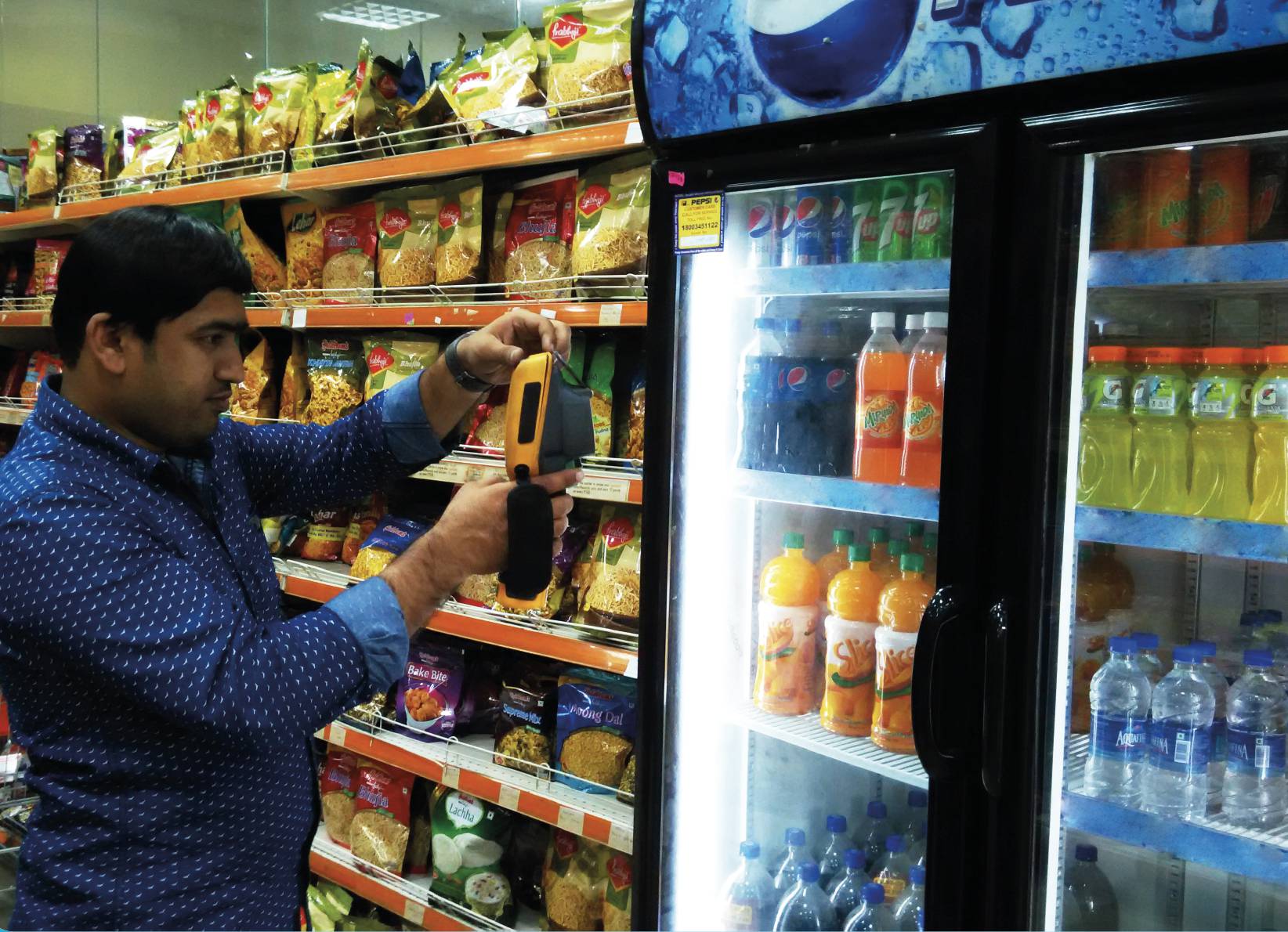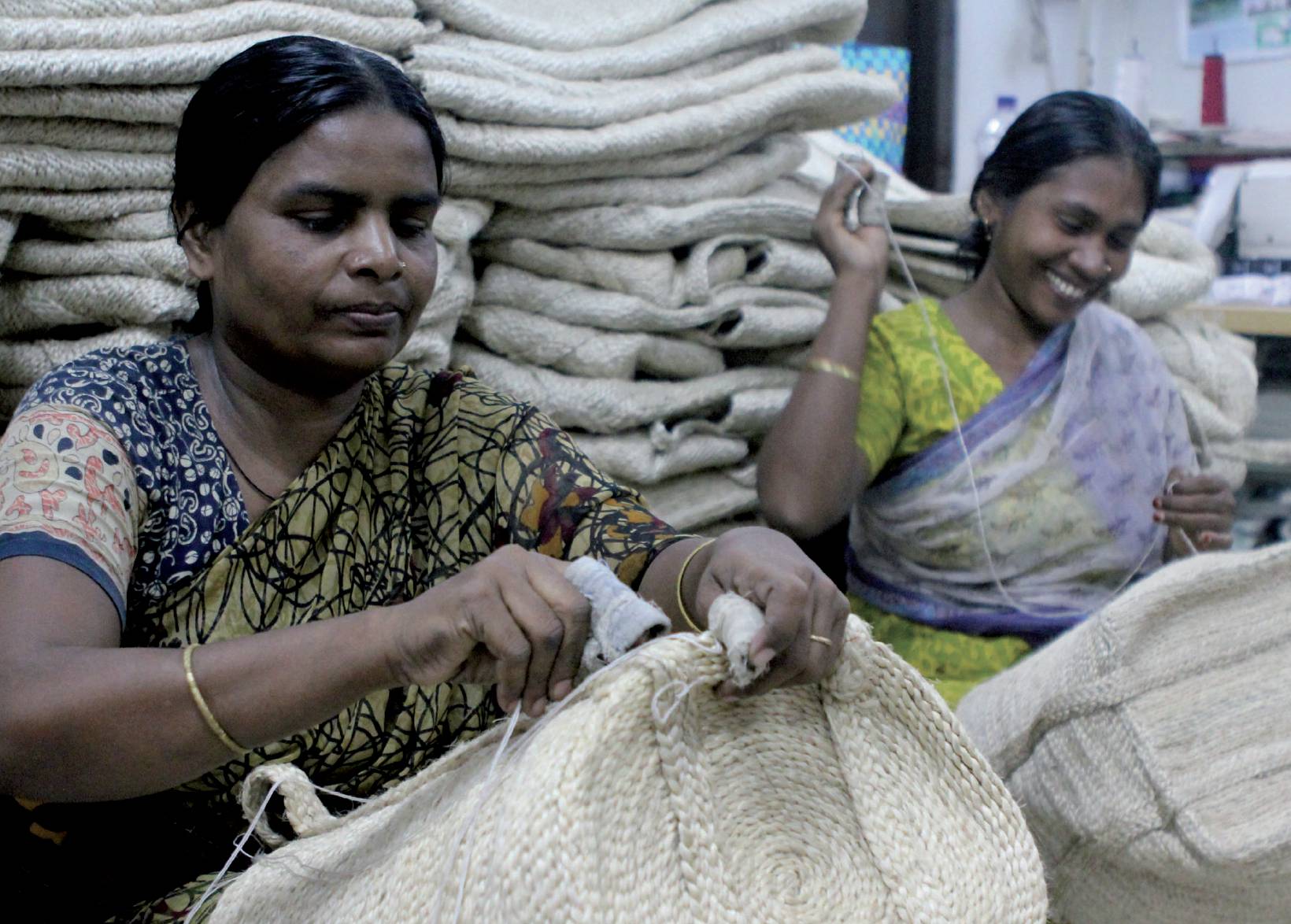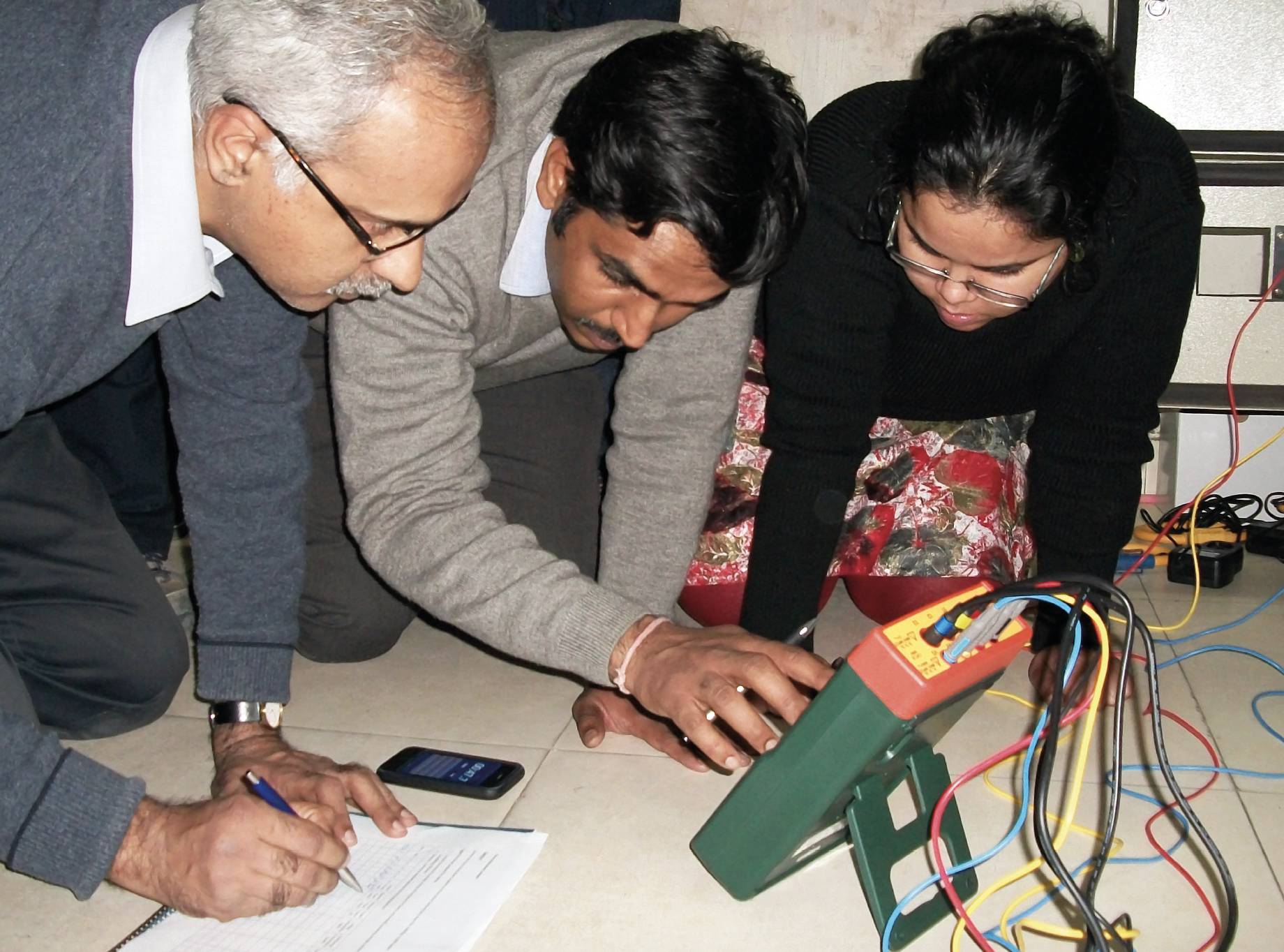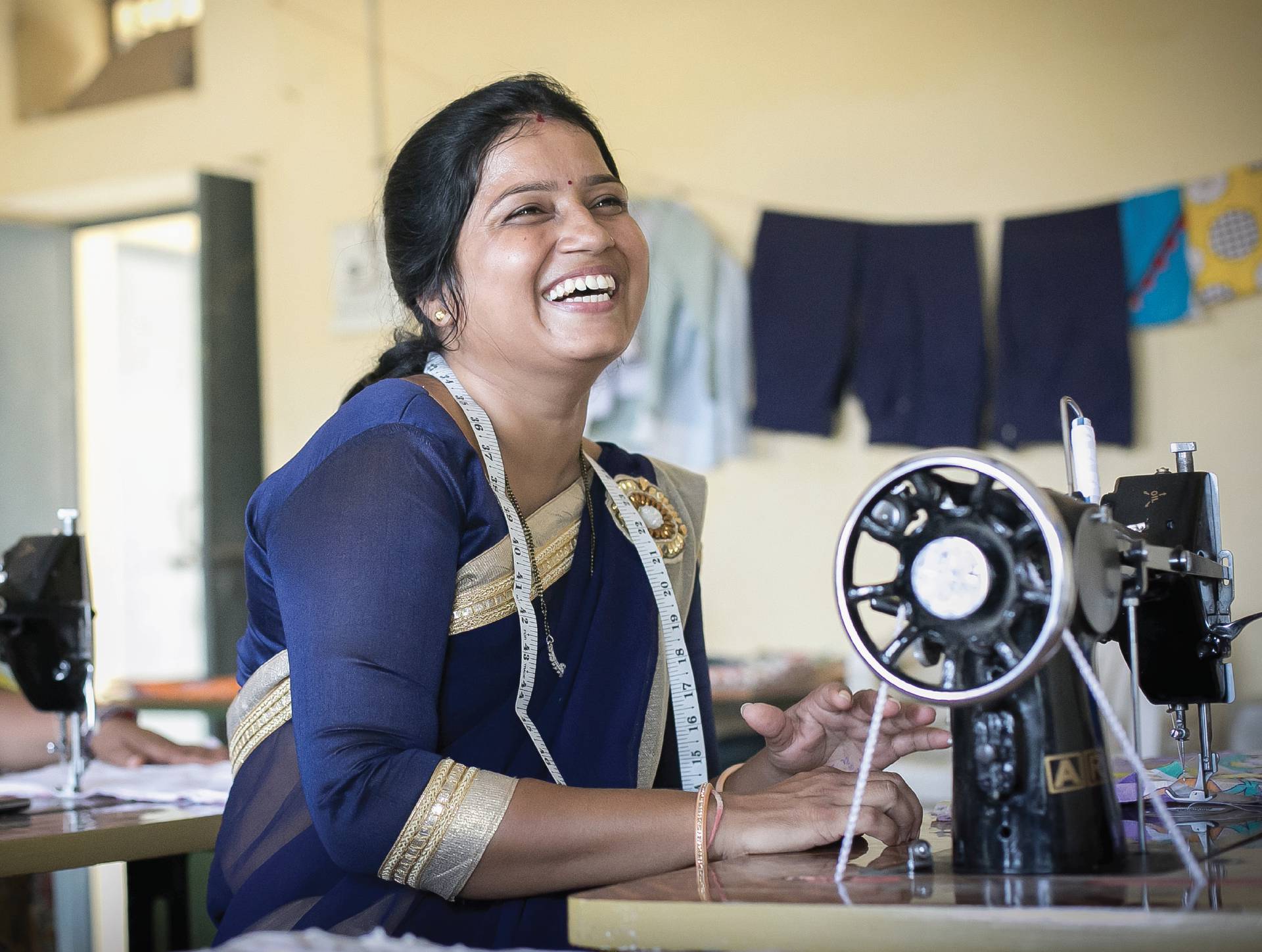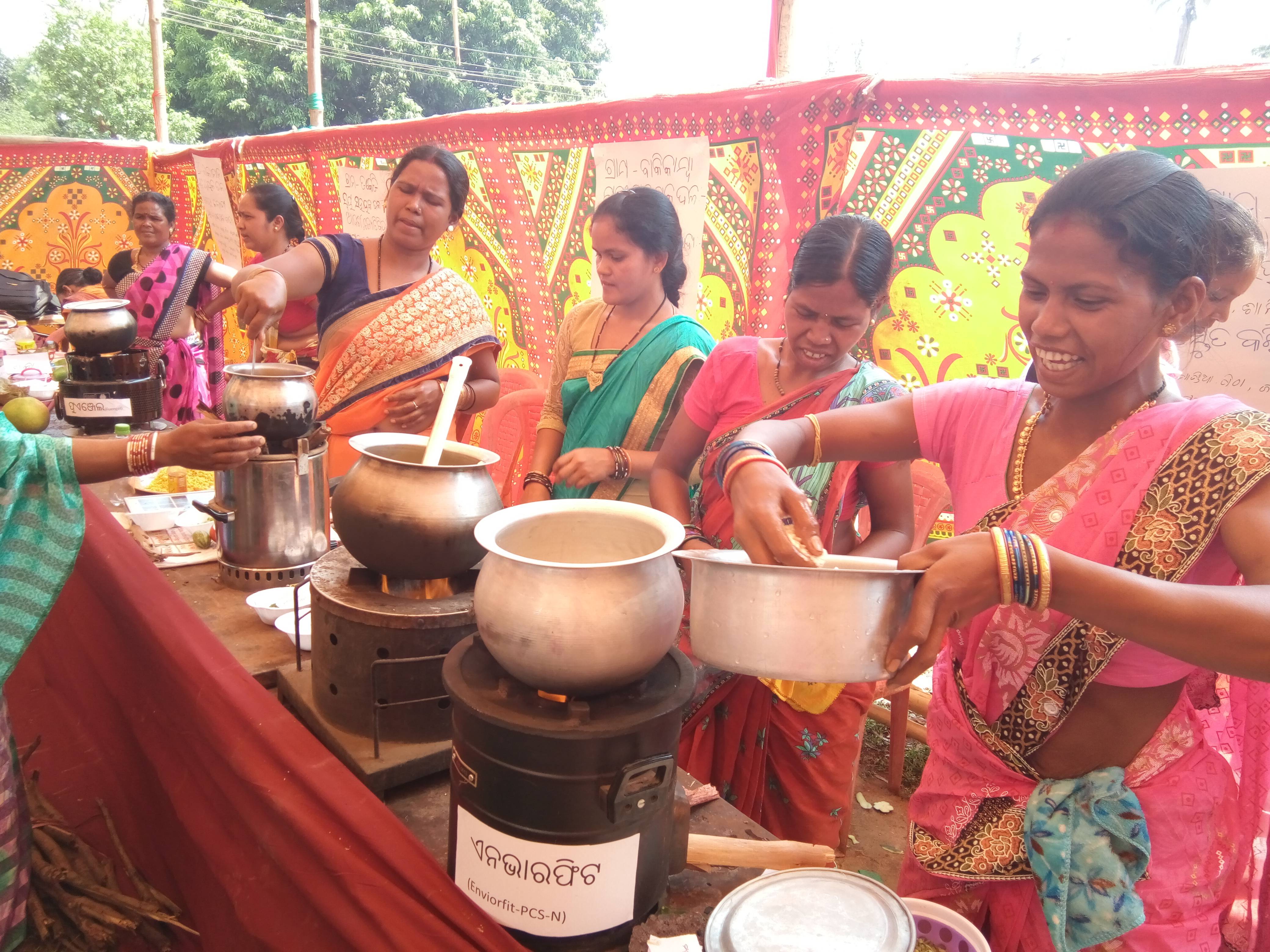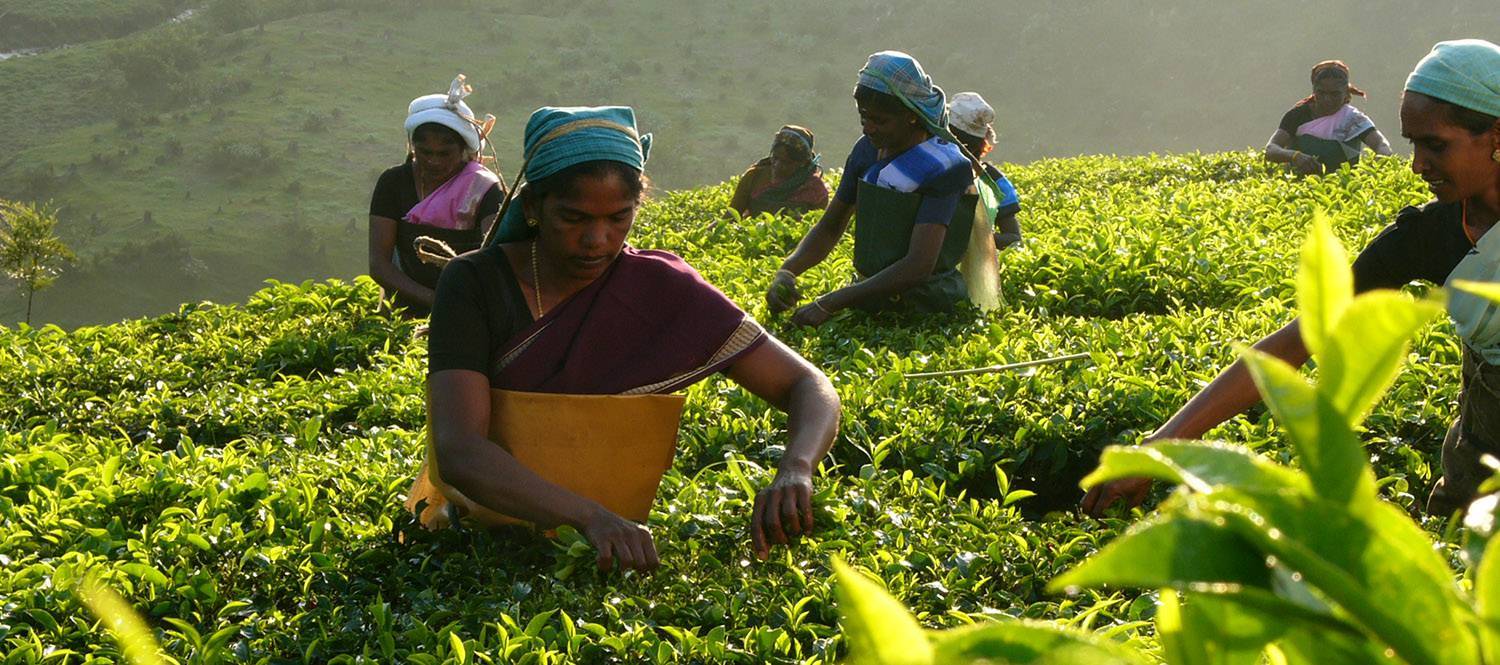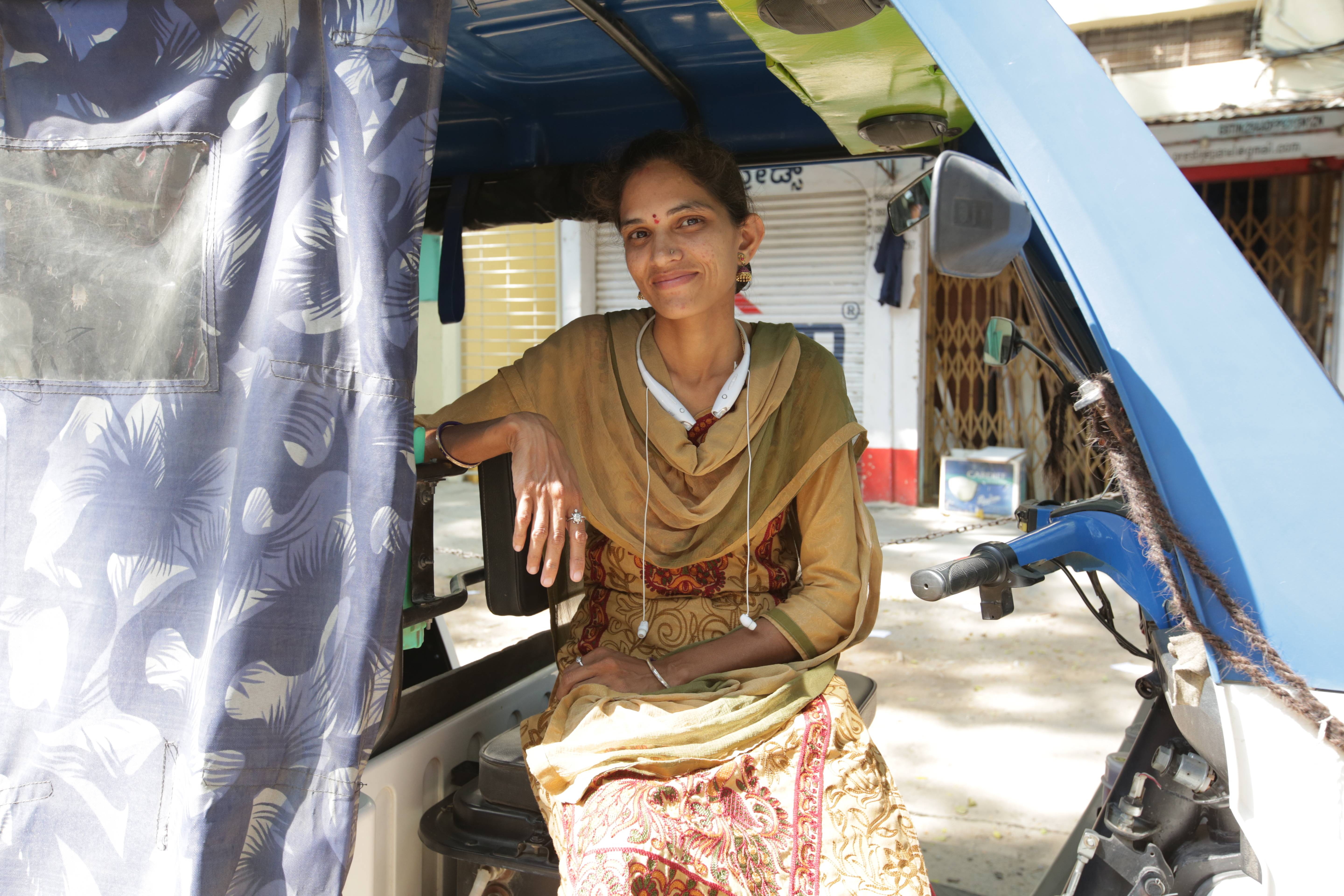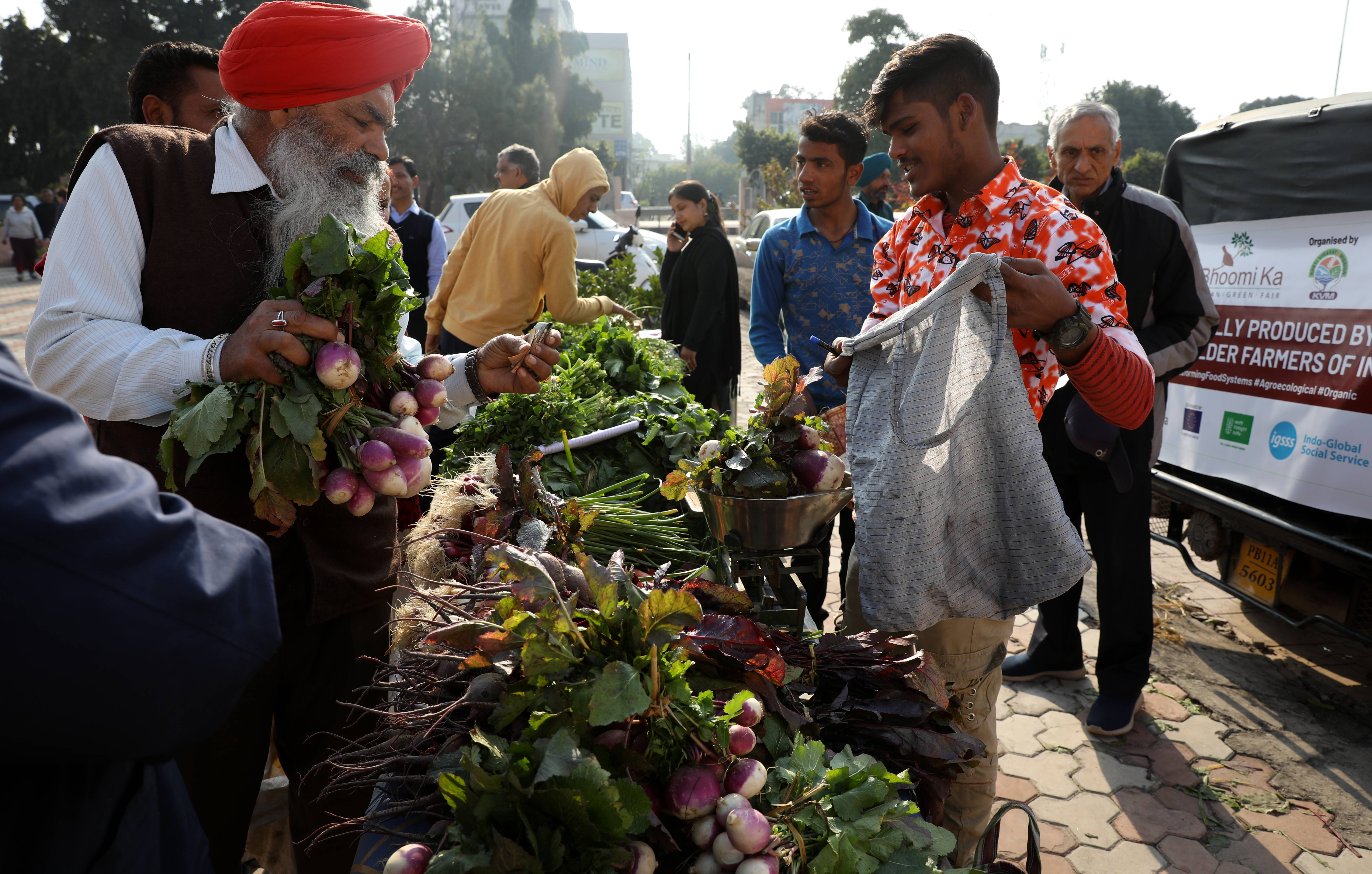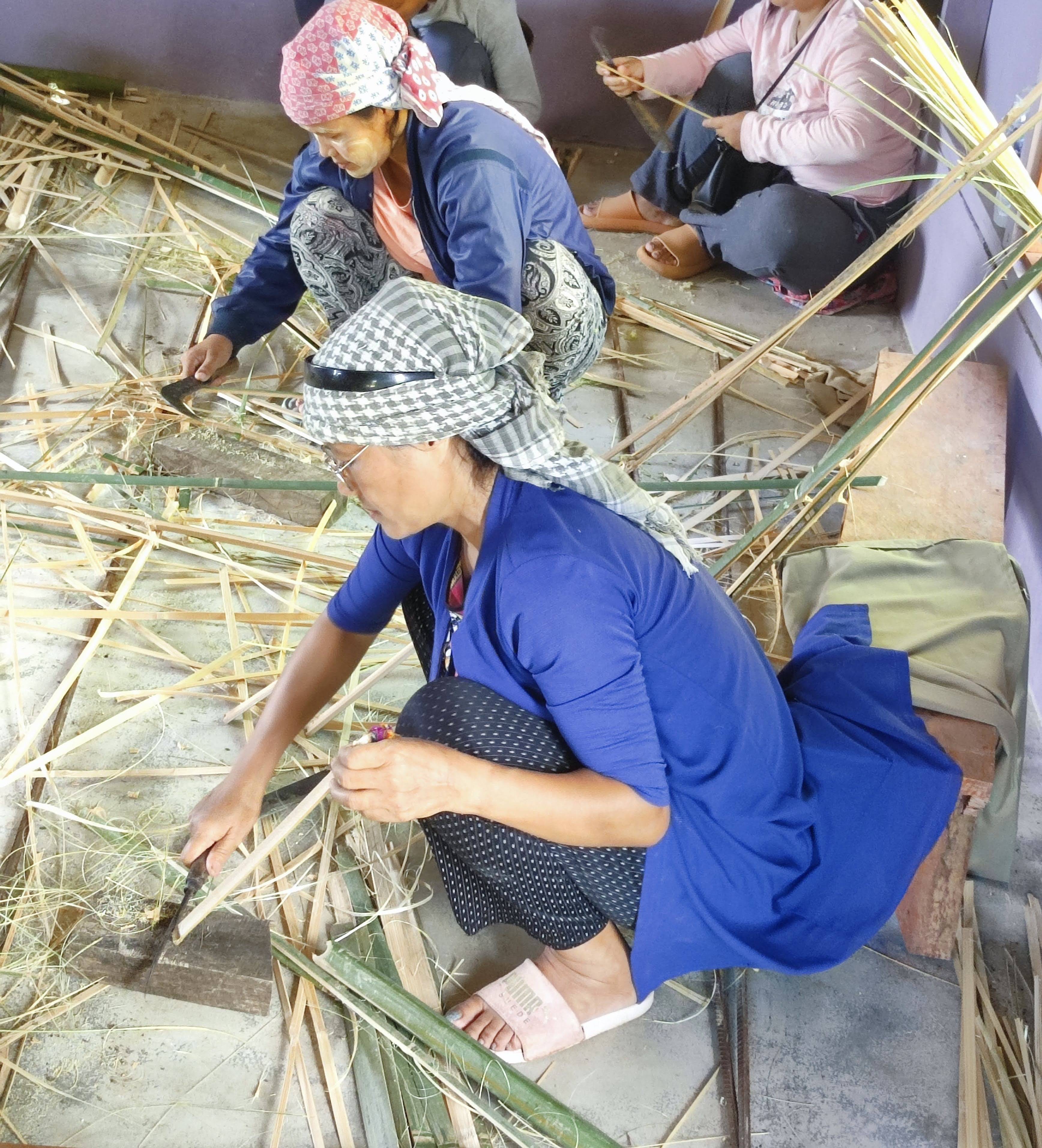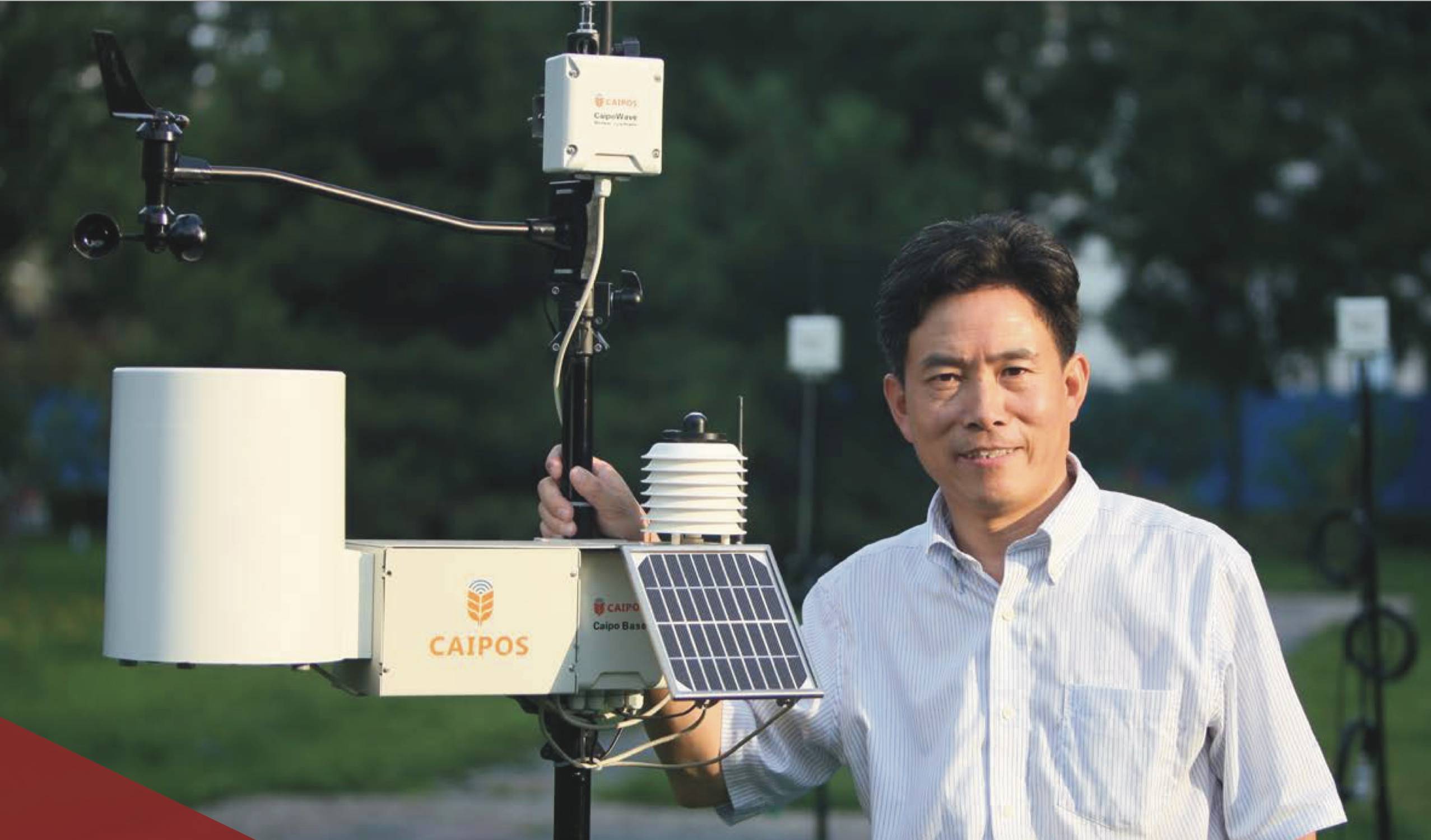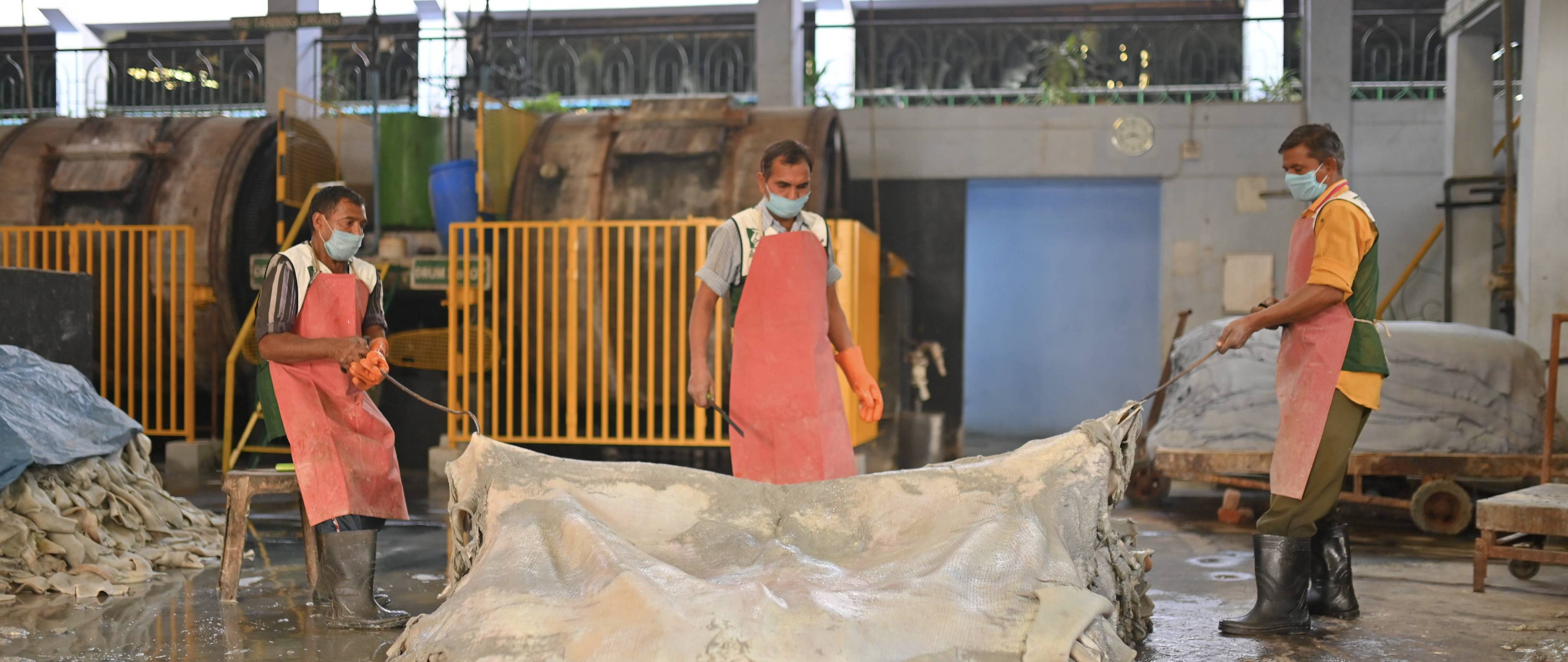
SCP Context
India National Context for SCP and Connection to the Global Agenda
India’s rapid development of the past 30 years has lifted hundreds of millions of its more than 1,4 billion population out of extreme poverty. Meanwhile, many of the challenges relating to SDG 12, Responsible Consumption and Production, are magnified in India. This is due to its large population size and low prioritisation of environmental protection in the context of its 6-7% GDP growth in the past decade. India today is the third-largest carbon emitter worldwide. Its per capita emissions at 2 metric tons / year are below the global average, which can be partly explained by the fact that still more than 200 million people can be considered poor. Yet due to its sheer size, the motto “grow now, clean up later” cannot apply in India any longer, and the highly detrimental effects of environmental damages on health and prosperity are already visible today – for example, air and water pollution levels are high, especially in industrial and urban regions.
Climate change threatens the development progress made, as single events such as droughts or thunderstorms and longer-term changes, for example in monsoon patterns, become more visible. Due to India’s geographic diversity, its adaptation endeavours are complex. With more than 50 million Indian households in the past decades having moved up into the middle class, and many more projected to join, consumption patterns modelled by Western industrialised societies need to be urgently reshaped in India if climate mitigation is expected to have serious long-term impacts.
India has numerous policies and strategies relevant to Sustainable Consumption and Production (SCP), governed by various ministries. The country is part of international initiatives and agreements, including the Paris Agreement and the SDGs as well as the 10 Years Framework of Programmes on SCP (10YFP) process. With its National Action Plan on Climate Change (NAPCC) from 2008 as part of the international process governed by the UNFCCC, India committed to eight government missions many of which are of relevance in the context of SCP. Other important policies include the National Environment Policy (2006); the National Forest Policy (last updated draft: 2018), the National Manufacturing Policy (2011), the National Mineral Policy (2008; 2019) and the Strategy on Resource Efficiency (2017, with the support of the EU). Additional relevant policy initiatives quoted by a recent publication on supporting India’s SDG 12 Monitoring and Reporting conducted by SWITCH-Asia RPAC include its Zero-Defect, Zero-Effect (ZED), Ecomark Labelling Scheme, Perform, Achieve and Trade Scheme (PAT), National Clean Energy and Environment Fund (NCEEF). An advisory body, the Resource Efficiency Cell, under the Ministry of Environment, Forest and Climate Change (MoEFCC) is tasked with supporting its implementation. All policies and strategies share a high level of ambition. The central government body NITI Aayog is in charge of overseeing the SDG implementation and publishes regular updates by way of a dashboard, including reporting on several SDG 12 indicators.
In the context of the SWITCH-Asia Programme, 22 grant projects have been implemented since 2009, covering a wide range of themes, from eco-innovation and entrepreneurship building to consumer education. Out of these, six projects are currently operating. All projects profit from India’s vivid NGO ecosystem, with various national and local organisations acting as implementing partners.
Challenges
Policy Ecosystem
- As a geographically and economically diverse federal country, national policies need to cover a broad spectrum, and be cognisant of interconnectedness and complexity. State-led strategies and legislation are diverse and make coordination and monitoring difficult. There are many national and federal policies of direct relevance to SCP. The overall strategies of the current government mention the importance of SDG achievement in India’s development trajectory. There is no overarching commitment specifically to the shift towards SCP or a government institution acting as coordinating and mainstreaming agency.
- Data gathering on SCP is done by NITI Aayog on all SDGs including SDG 12. Countrywide data gathering and analysis is challenging, as there is no clear standardisation for SDG 12 and other SCP related targets since many SCP-relevant activities are carried out by informal sector.
- In its voluntary national review of 2020, NITI Aayog stated the importance of improving resource efficiency of several sectors, including waste management and recycling, building and construction, transport, and public procurement as essential for achieving greater impact on SDG 12. It also showed the large regional and state differences with regard to SDG 12 achievements.
- Partnerships exist across sectors to conduct research on resource efficient technologies, between business, industry and academia, but more scaling up and impact are needed.
- Communication on SCP-relevant goals and practices exists as national programmes on visible issues. These comprehensive programmes are complemented by initiatives at state and local level which target predominantly individual consumption behaviour or singular issues. Both general public and industry players are often not aware of the systemic shift required in the field of SCP and the necessary and interconnected changes in policies, production and consumption patterns.
SCP Practices
- Sustainable consumption is of high relevance in India and has received considerable attention from national, state and local governments. For example, Delhi was one of the first cities worldwide to ban single-use plastic bags. At the same time, a more comprehensive understanding of the complex relationship between consumption, production and economic growth and the potential for decoupling and of circularity is in a nascent stage among key stakeholders.
- In the sustainable production field, India’s formal collection and recycling rate is relatively low across waste sectors compared to global averages. Traditional industrial or agricultural practices often integrate circularity, and materials of high value (e.g., metals, PET bottles) are recycled in unknown amounts in the informal sector. It is reported that this is oftentimes done under unsafe und environmental unsound conditions.
- India’s resource use has been described as inefficient across sectors – particularly energy and water supply are often outstretched by demand, due to aging machinery and practices that do not prioritise efficiency. This applies to both among large-state owned enterprises and small-scale industries. Circularity is currently only rarely used as concept for business strategy development by companies, as linear business models are considered more profitable and of less risk.
- Despite predominantly stringent pollution legislation at federal and state-level and existent state-level implementation agencies, many companies continue to contaminate soil and water with unsafe practices. Oversight is not coherently and effectively implemented, exposing workers and communities to unhealthy work and living conditions. Indian companies can adhere to strict supply chain rules regarding health and environmental standards if required by international clients.
Priorities
In addition to responding to the challenges, there are key activities for promoting SCP efforts and the long-term success of the SDG implementation including:
- Aligning SCP-related activities with the UN Sustainable Development Goals and acknowledging the importance of SCP as key factor for realising SDG 12 and many other SDGs.
- Mainstreaming the concept of SCP in the existing policy and regulatory framework.
- Exploring a policy framework that assures wellbeing and continued development while reducing environmental impacts of consumption and production, e.g., through new lifecycle practices.
- Strengthening initiatives to promote green public procurement.
- Key sectors that require attention include: energy efficiency, sustainable housing, sustainable transport and waste-to-energy solutions, hazardous waste management, industrial water reuse and reduction (including reduction in unsustainable ground water use).
- Improving sustainability along the entire supply chain, from producers to the final consumer. Regulation of producers and awareness among consumers about sustainable consumption choices.
- 10 YFP – priorities: Natural Resource Management and Food Systems, (2) Resource Efficiency, particularly with regard to reducing import dependency for the majority of the ‘most critical’ materials, (3) Sustainable Buildings and Construction, particularly in view of increasing urbanisation, (4) Public Procurement, (5) Sustainable Tourism.
Opportunities
- Increase international cooperation, facilitating technology transfer and financing innovation and implementing key pilot initiatives in the above priority areas or challenges identified.
- Continue engaging with international processes regarding SCP, including 10YFP and SDG monitoring; development of National Action Plan on SCP
- Sharing of experiences, including the “Indian model of localisation” on (a) creating institutional ownership, (b) establishing a robust review and monitoring system, (c) developing capacities for SDG planning and monitoring and (d) promoting a “whole of society” approach, specifically for SDG 12.
SWITCH-Asia Activities
2018
SCP Facility
- Preliminary assessment of SCP related policies, activities, needs/gaps, and opportunities.
Regional Policy Advocacy Component (RPAC)
Facilitated the participation of Indian key-stakeholders in the following regional/ sub-regional activities:
- Asia Pacific Low Carbon Lifestyles Challenge (19-22 Mar 2018), hosted by Thailand, regional level
- Transforming Asia Pacific: Innovative Solutions, Circular Economy and Low Carbon Lifestyles (17-19 Sep 2018), hosted by Thailand, regional level
- Asian Circular Economy Leadership Academy (3-8 Dec 2018), hosted by Thailand, regional level
2019
SCP Facility
- The National Focal Point officially addressed a specific request for support to prepare an action plan to mainstream Green Public Procurement (GPP) in close cooperation with the Ministry of Railways.
- A concept note with specific actions and timeline was signed off on by national government entities.
- Once the concept note is approved, the term of reference for experts will be developed.
Regional Policy Advocacy Component (RPAC)
- Initiated a national activity to support India on SDG12 monitoring and reporting. The activity included different components: i) identification of relevant indicators for India’s reporting on SDG 12 at the national and international levels; ii) facilitation of a policy dialogue around SDG 12 monitoring and reporting; iii) support the establishment of a follow-up mechanism for SDG 12 reporting; iv) capacity building to report on specific indicators.
Facilitated the participation of Indian key-stakeholders in the following regional/ sub-regional activities:
- “Sustainability Reporting – Thinking Circular Economy by Businesses” - This event was organised back-to-back with 2019 Asia Pacific Forum on Sustainable Development (27 Mar 2019), hosted by Thailand, regional level
- Businesses Accelerating Inclusive Green Economies – "Leaving No One Behind” - Side event on the Responsible Business and Human Rights Forum co-organised by the Royal Thai Government, OECD, United Nations Development Programme (UNDP), ESCAP, International Labour Organization (ILO) and with the participation of the UN Working Group on Business and Human Rights (11 Jun 2019), hosted by Thailand, regional level
- WEBINAR: SDG 12.1 Reporting for SWITCH-Asia Countries – Connecting the dots between actions and reporting (5 Nov 2019), regional level
- Policy Dialogue on SDG12 Reporting (21 Nov 2019), hosted by Vietnam, regional level
- 2019 SWITCH-Asia Leadership Academy on Circular Economy (2-6 Dec 2019), hosted by China, regional level
- "Supporting decision making on SCP through training on Sustainable Procurement” - This event was organised back-to-back with International Conference on Sustainable Energy and Green Technology 2019 (11 Dec 2019, hosted by Thailand, regional level
2020
SCP Facility
- Assignment on Sustainable Public Procurement (SPP) at Indian Railways launched: two SCP Facility experts working on advising the Ministry of Railways on translating policies into a plan of action for mainstreaming Sustainable Public Procurement (SPP), sustainable building and construction, water and waste management.
- Outputs of the assignment: Scoping report developed; stakeholder consultation workshop held in August 2020; awareness programme and training for procurement officers delivered in October 2020.
- Research delivered regarding financing options for SCP practices in India; business case development for INDTUK project.
Regional Policy Advocacy Component (RPAC)
- The RPAC has provided technical support to India for developing a monitoring and reporting framework for SDG 12 to enable robust reporting of India’s progress in achieving Goal 12
- The RPAC also facilitated India’s reporting on SDG 12.1 for the global call for reporting by the 10 YFP Secretariat
Facilitated the participation of Indian key-stakeholders in the following regional/ sub-regional activities:
- SWITCH2Green Meeting (Apr 2020)- RPAC initiated the discussion and shared the first report in 2020.
- Moving the Needle on Climate Change (10 Jun 2020)– The event was co-organised by the UNESCAP as a part of the 2020 Virtual United Nations Responsible Business and Human Right Forum (RBHRF), regional level
- World Environment Day 2020 (5-7 Jun 2020)– A media kit was provided to call for action to promote SCP as a part of the 2020 World Environment Day (WED) celebration, regional level
- Intervention in regional forum: Webinar on Sustainable Lifestyles for Plastics & Packaging Waste Management During a Pandemic COVID-19 (6 Aug 2020), regional level
- SCP in Tourism: Opportunities and Challenges with COVID-19 (8 Oct 2020), regional level
- Innovation and Connectivity through Farm to Fork (13 Nov 2020), regional level
- Sustainable Lifestyles for SCP (19 Nov 2020), hosted by Thailand, regional level
- Sub-regional Workshop on SPP for SACEP Countries (25 November 2020), the event was organised in partnership with South Asia Co-operative Environment Programme (SACEP) for South Asia region, Sub-regional level
- Support to Steering Committee of SWITCH-Asia (3 Dec 2020)– RPAC provided support for the annual Steering Committee Meeting and proposed 2021 workplan, regional level
- Regional Policy Dialogue on Circular Cities (4 Dec 2020), regional level
- Regional Dialogue Driving Mechanisms for Eco-Design in Asia (9 Dec 2020), regional level
- Leadership Academy on Circular Economy 2020 (14-18 Dec 2020), regional level
- Webinar: Innovations & Startups (16 Dec 2020), regional level
2021
SCP Facility
- Experts have delivered training through vendor stakeholder workshops on services and products; Training of Trainers at Indian Railways’ capacity building institute NAIR and handover of materials for integration into training programmes
- Final workshop held in June 2021 to present and gain feedback and support for policy action plan: Sustainable Public Procurement for Indian Railways › Resource Library | SWITCH-Asia
- Publication of Scoping Study, Policy Analysis, Action Plan, Implementation Guide Sustainable Public Procurement Action Plan for Indian Railways › Resource Library | SWITCH-Asia
- Publication on SCP Financing options in India finalised Access to Finance for SCP Practices by Small and Medium-sized Enterprises in India › Resource Library | SWITCH-Asia
Regional Policy Advocacy Component (RPAC)
- National Consultative Roundtable Dialogue (02 March 2021) – to present the draft report proposing a framework for SDG 12 monitoring and reporting in India to strengthen national reporting on Goal 12.
- World Environment Day 2021 (03 June 2021) – webinar on “Empowering Youth for SCP & Ecosystem Restoration” to highlight the vital role of applying SCP principles for the resilient ecosystems with a focus on Sustainable Food Systems.
Facilitated the participation of Indian key-stakeholders in the following regional/ sub-regional activities:
- Contextualising the Circular Economy for Action (4 Feb 2021), regional level
- Technology for Circular Economy: A Prologue to the 2021 SWITCH-Asia Leadership Academy (25 March 2021), regional level
- Circular Economy and Sustainable Lifestyles Course (18 May 2021) – launch of offline course on SCP for policy makers and young professionals, regional level
- South Asia Policy Dialogue on the Role of Businesses in Accelerating SCP (23 March 2021) – to disseminate the findings of the RPAC Study on SCP – Stocktaking of Perspectives in South Asian Business, sub regional level
- GO4SDGs High level launch in Asia and the Pacific (21 April 2021), regional level
- World Environment Day 2021 (4 June 2021), regional level
2022
SCP Facility
- Grant projects from India presenting key contributions at Agri-Foods Cluster Meeting Rethinking Agri-food Systems through Circular Economy and Resource Efficiency: Barriers, Innovations and Learnings › Resource Library | SWITCH-Asia


